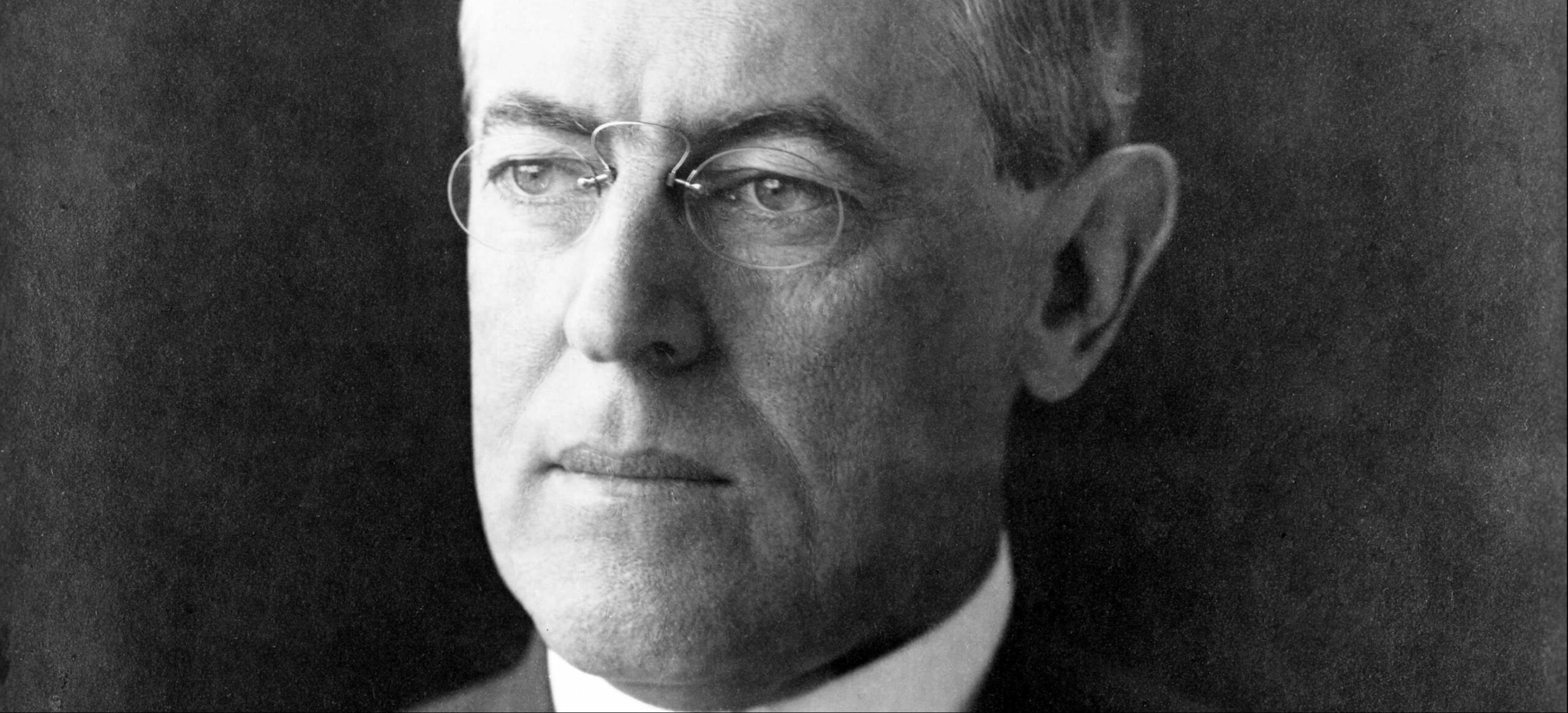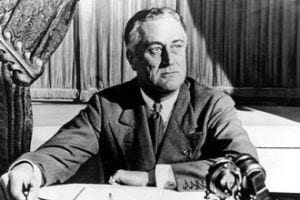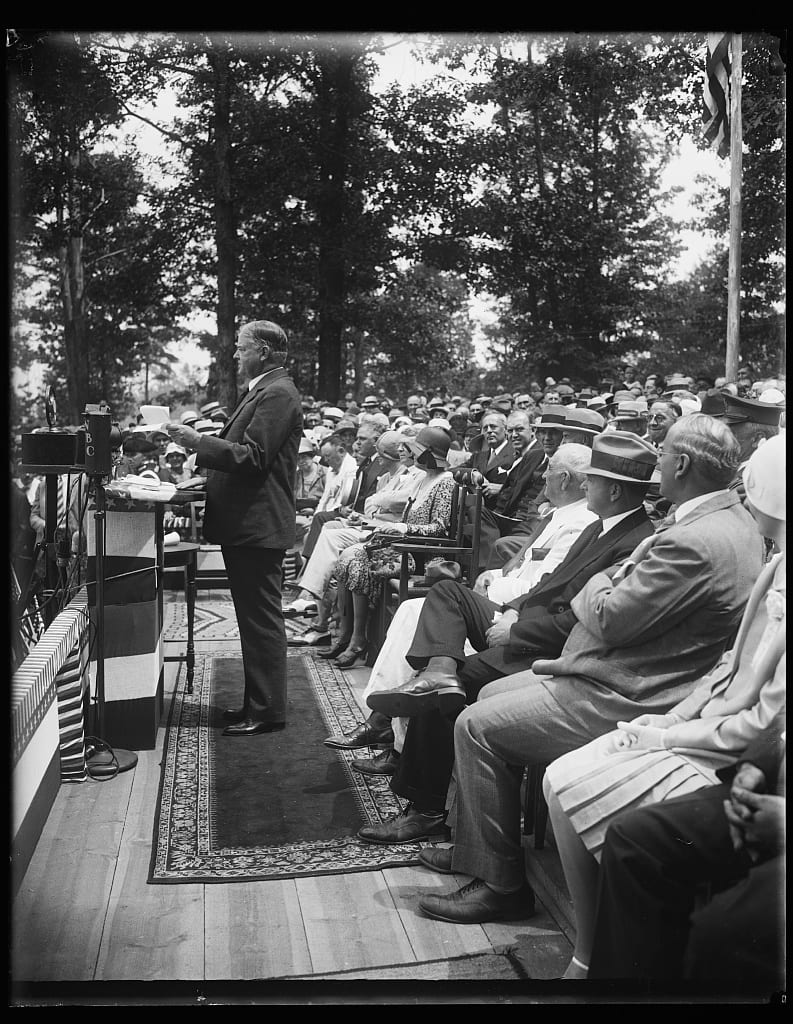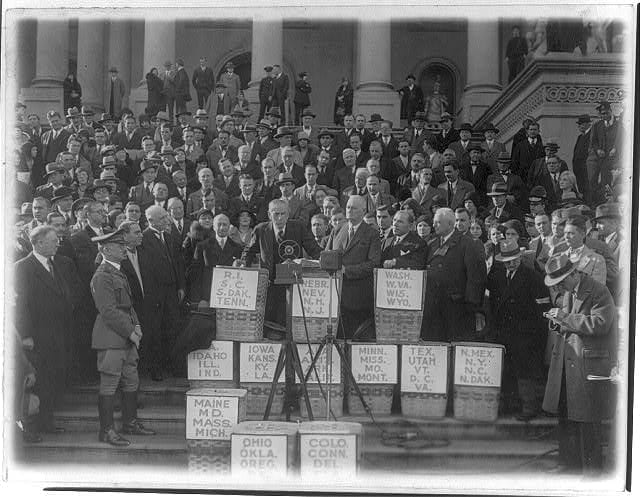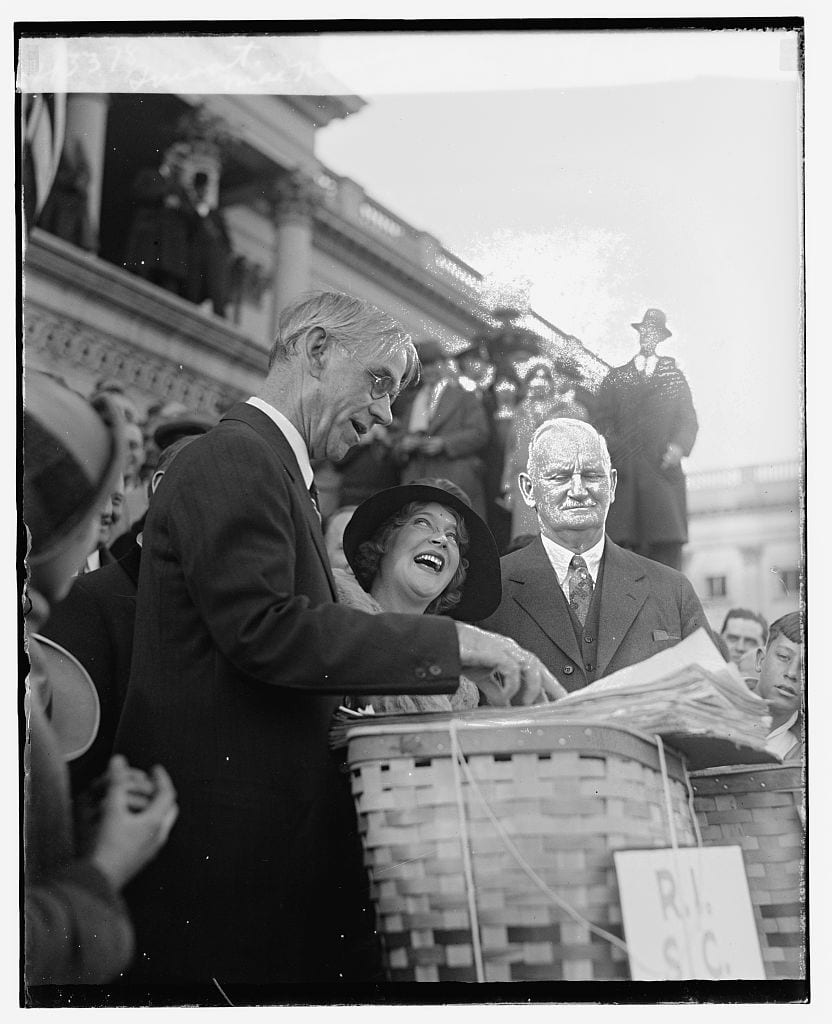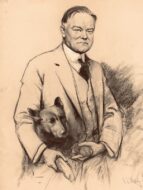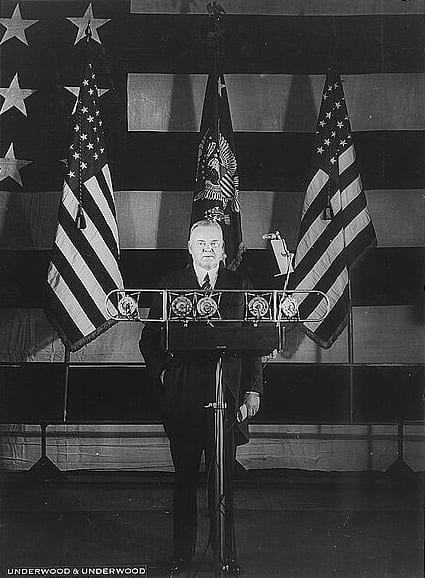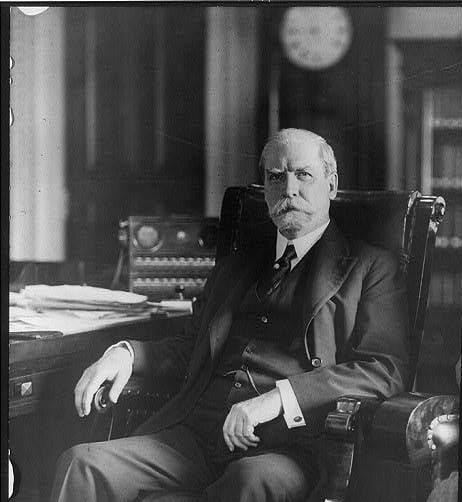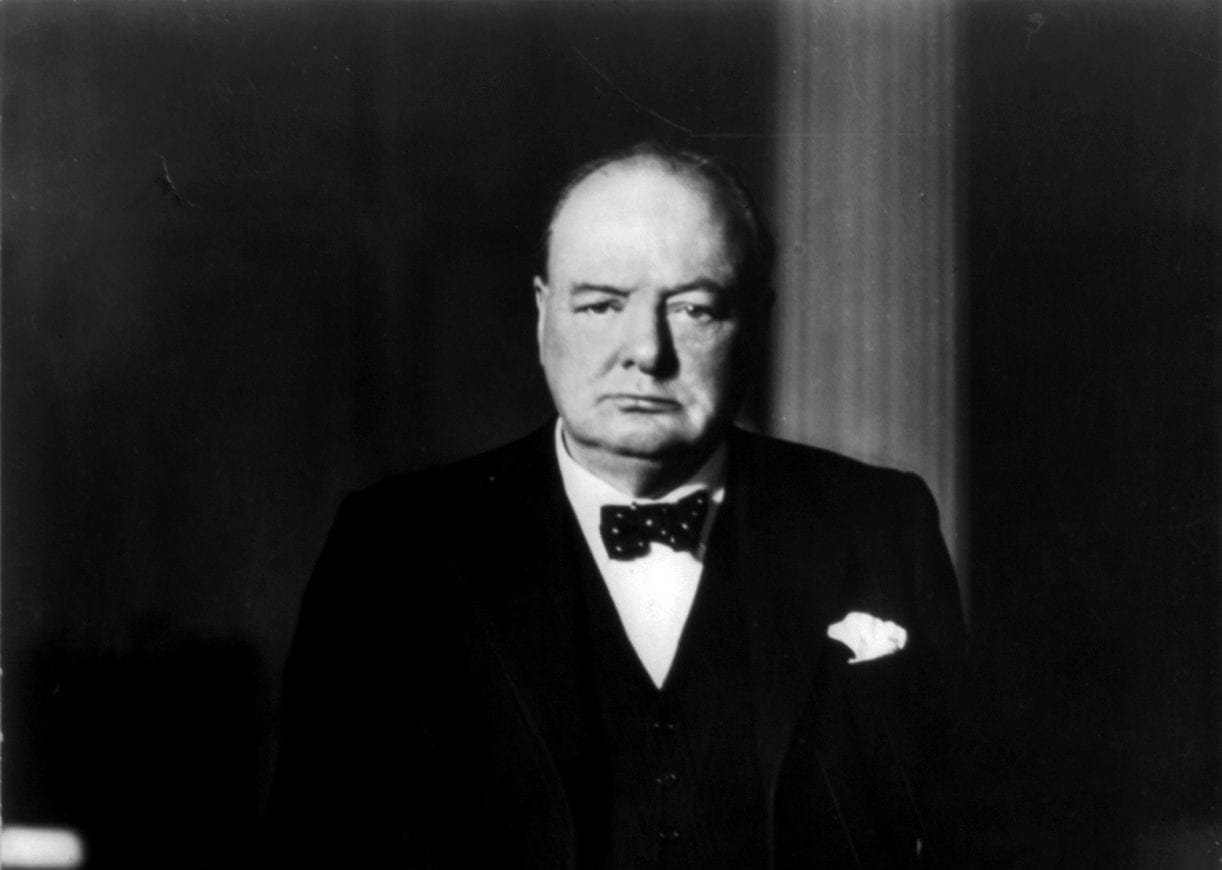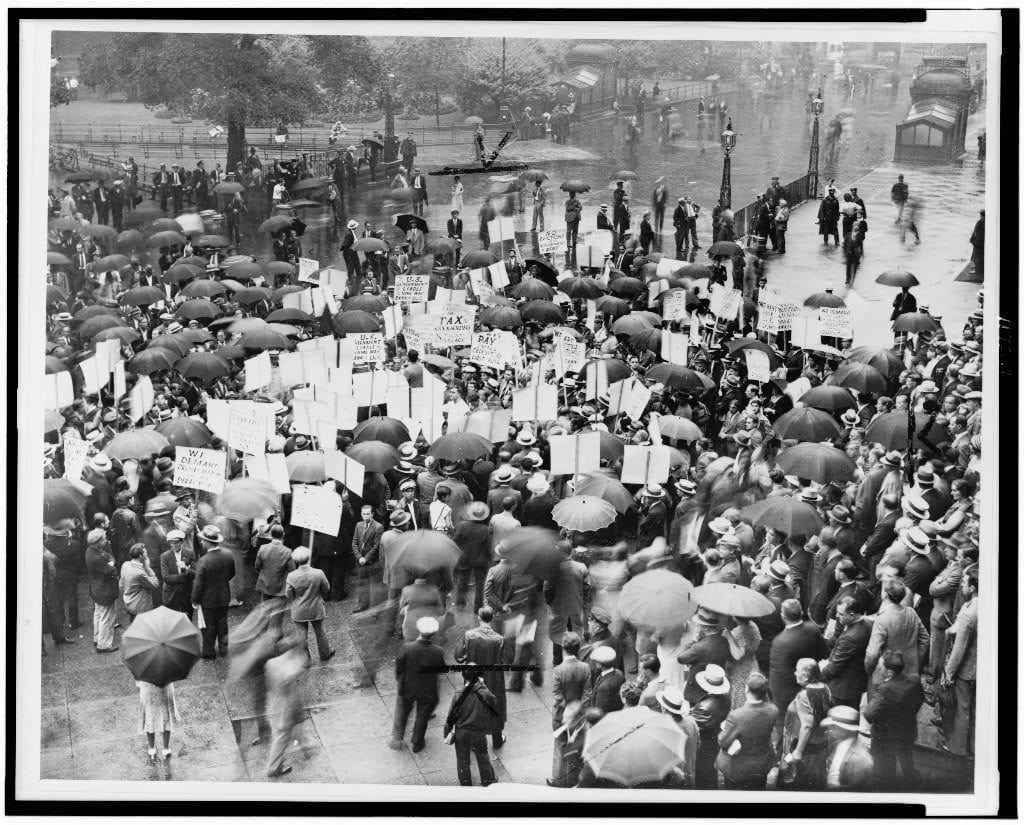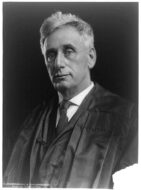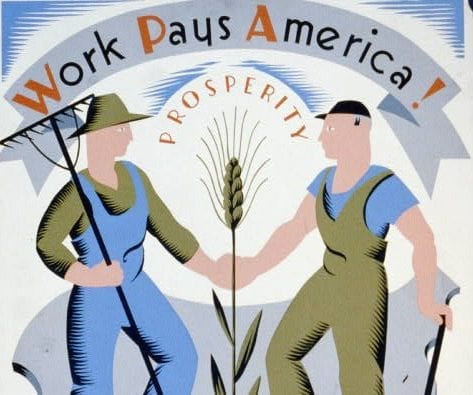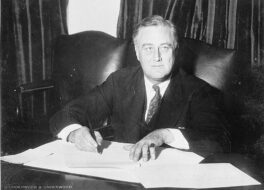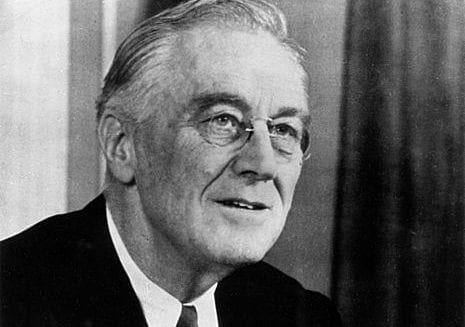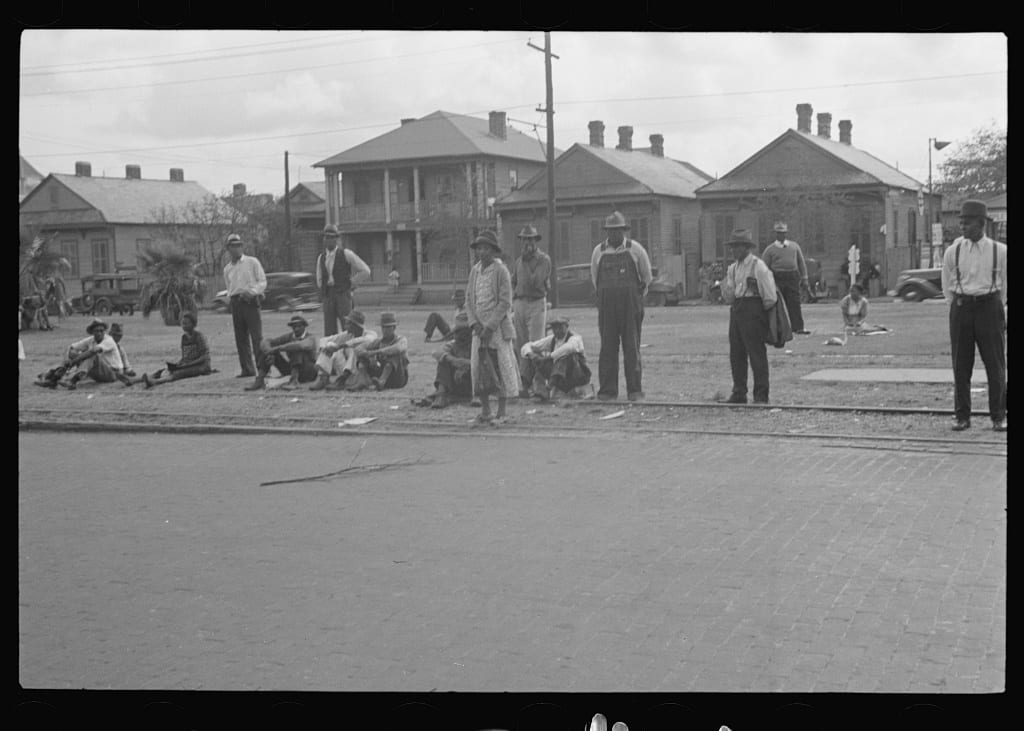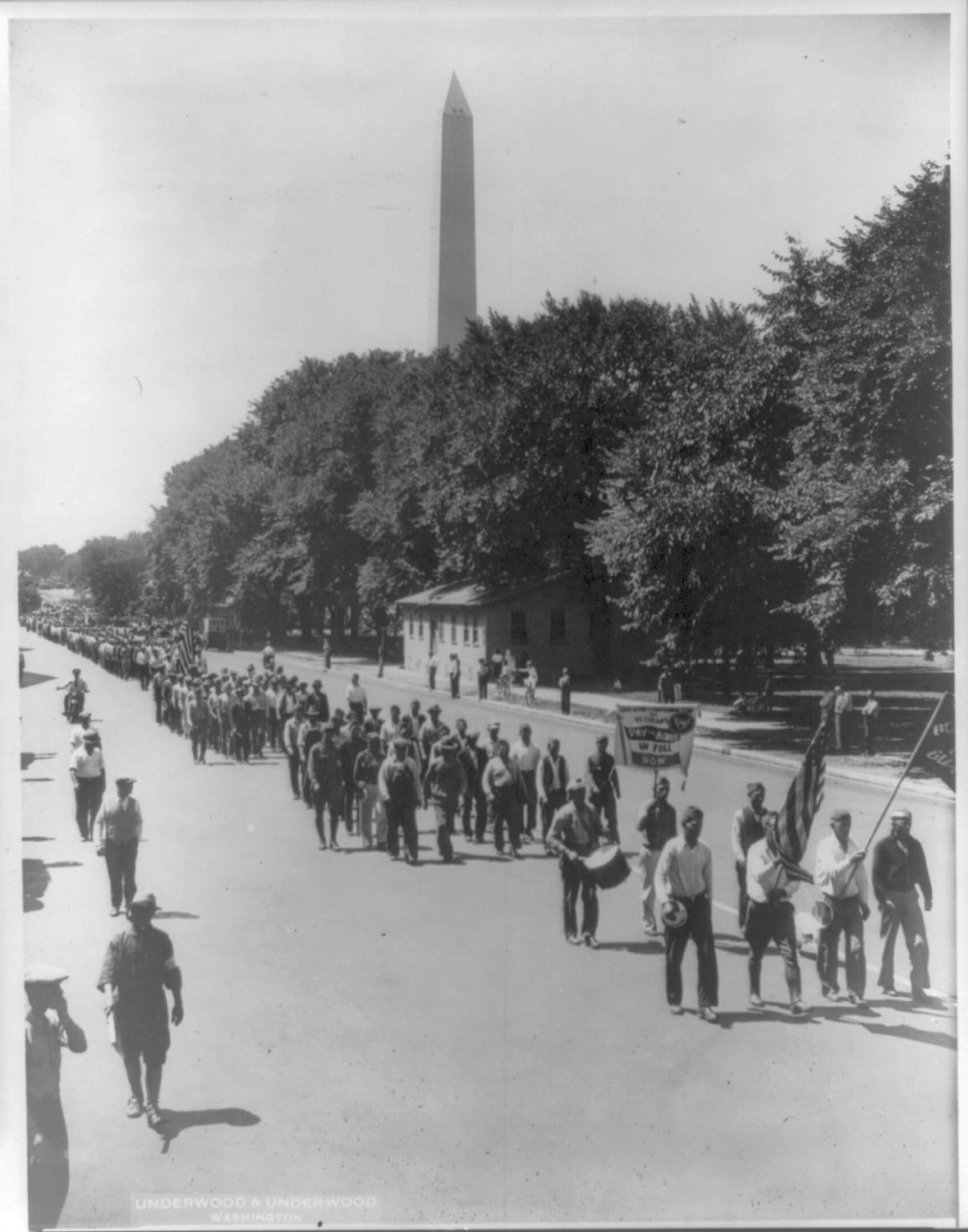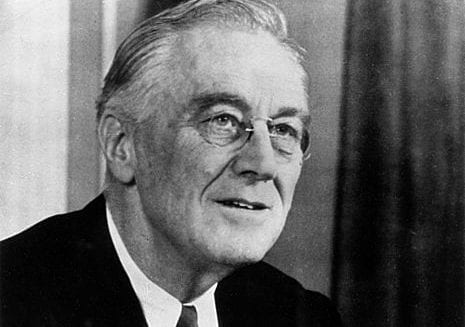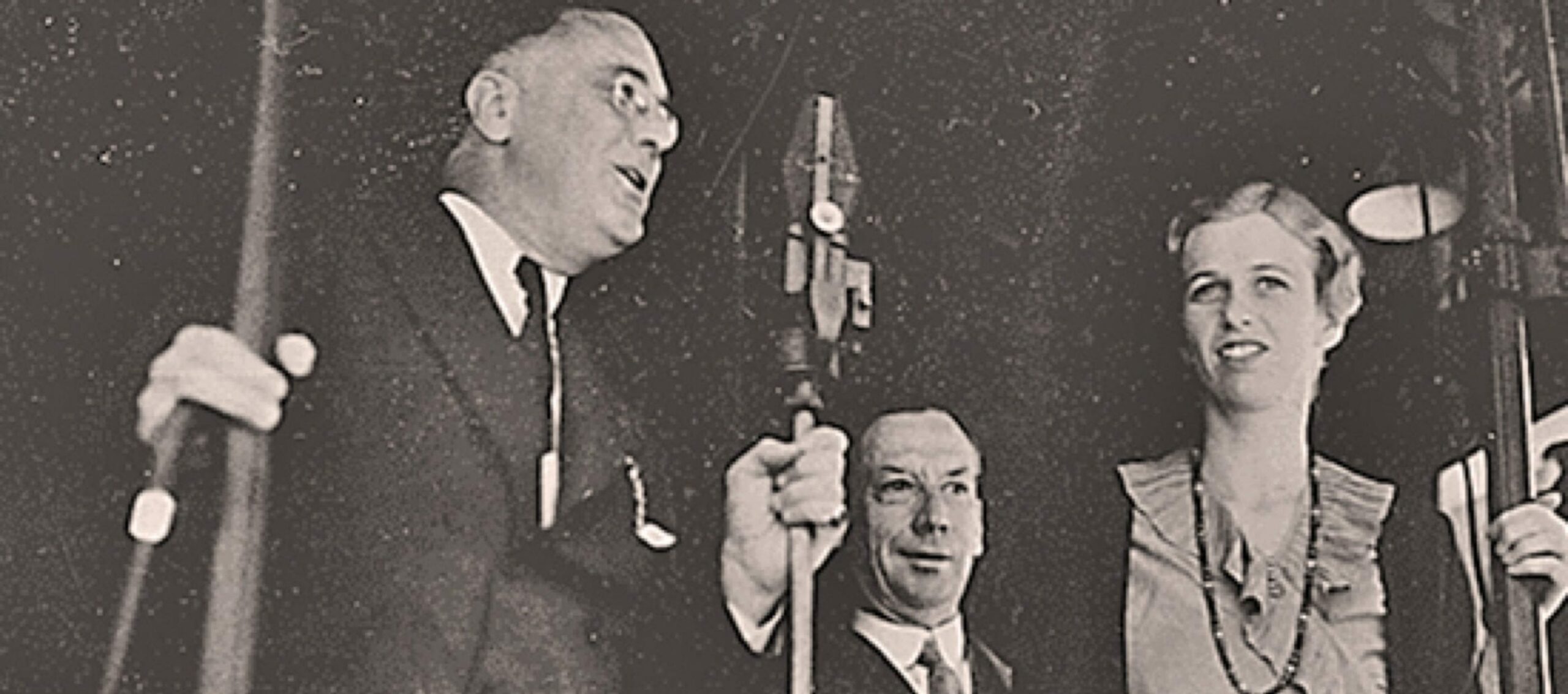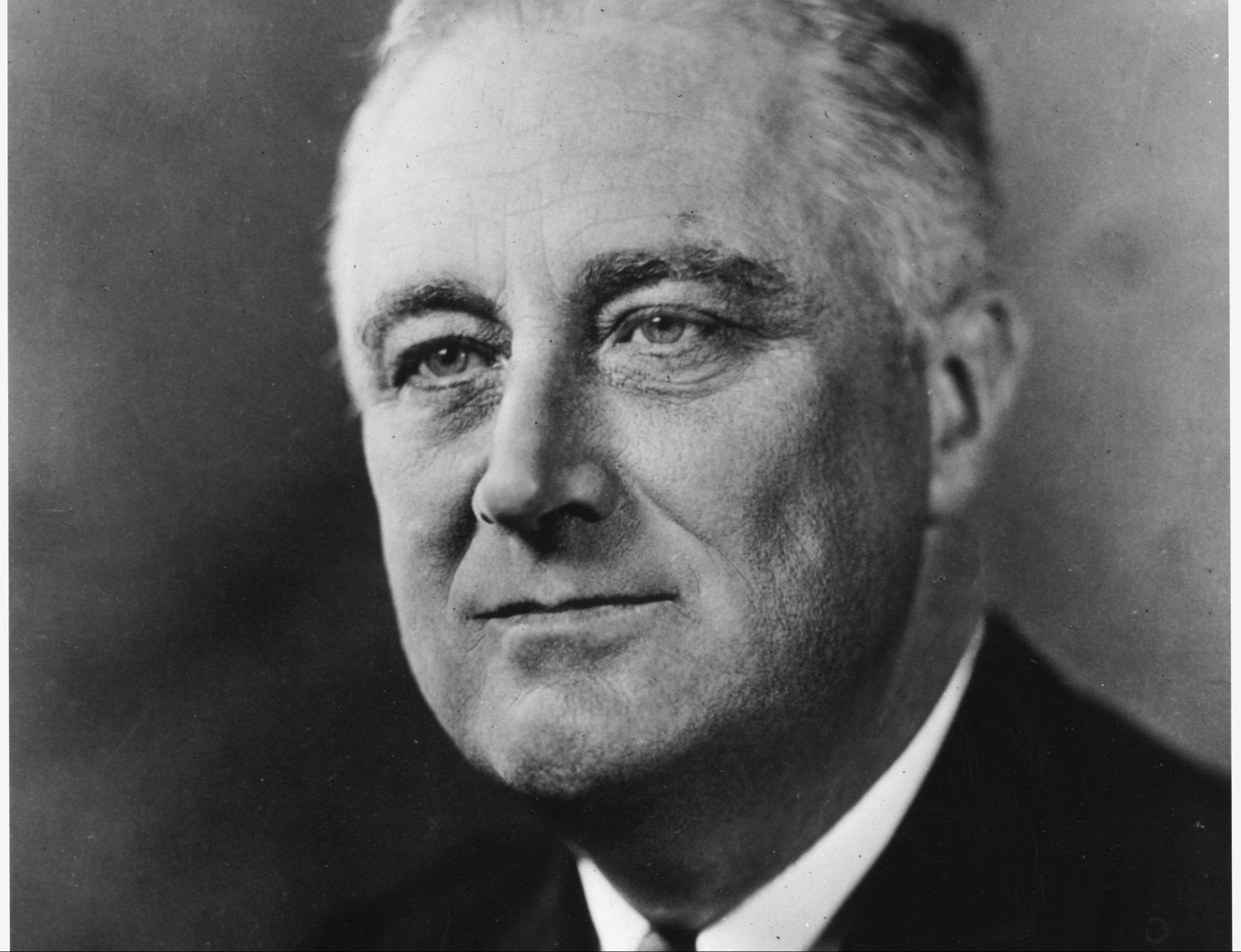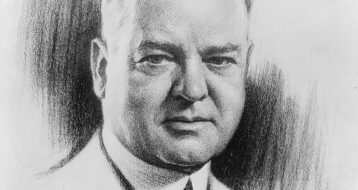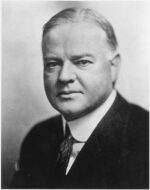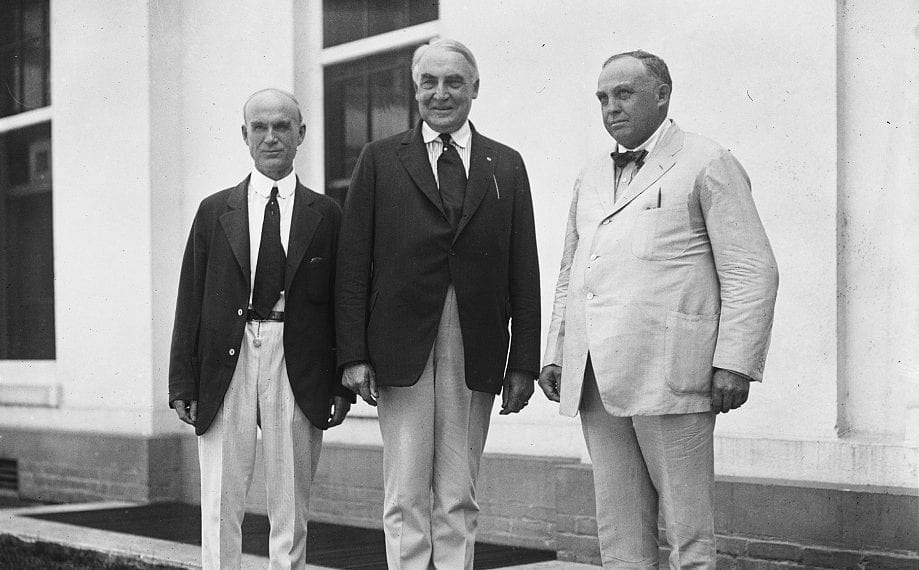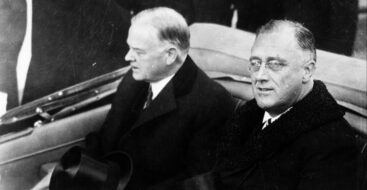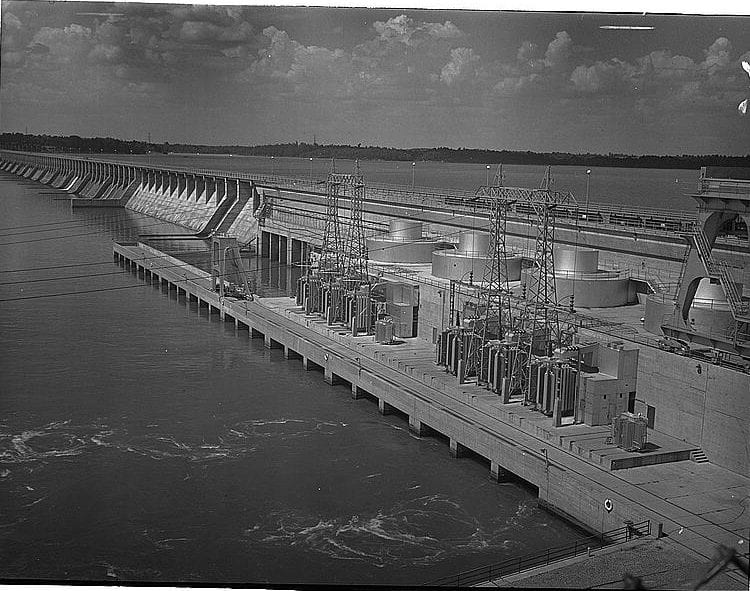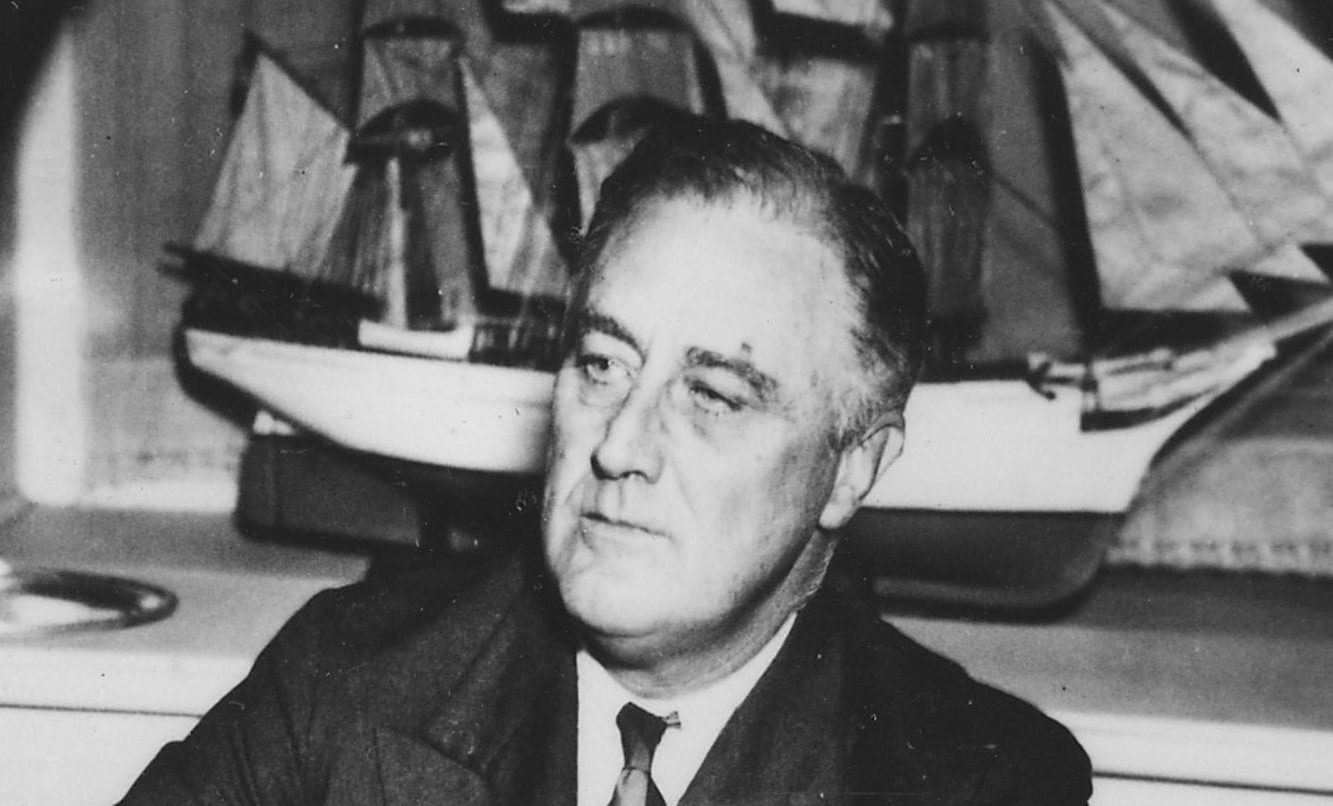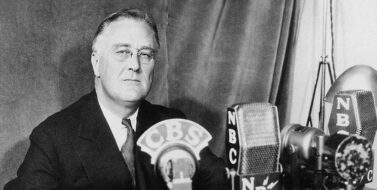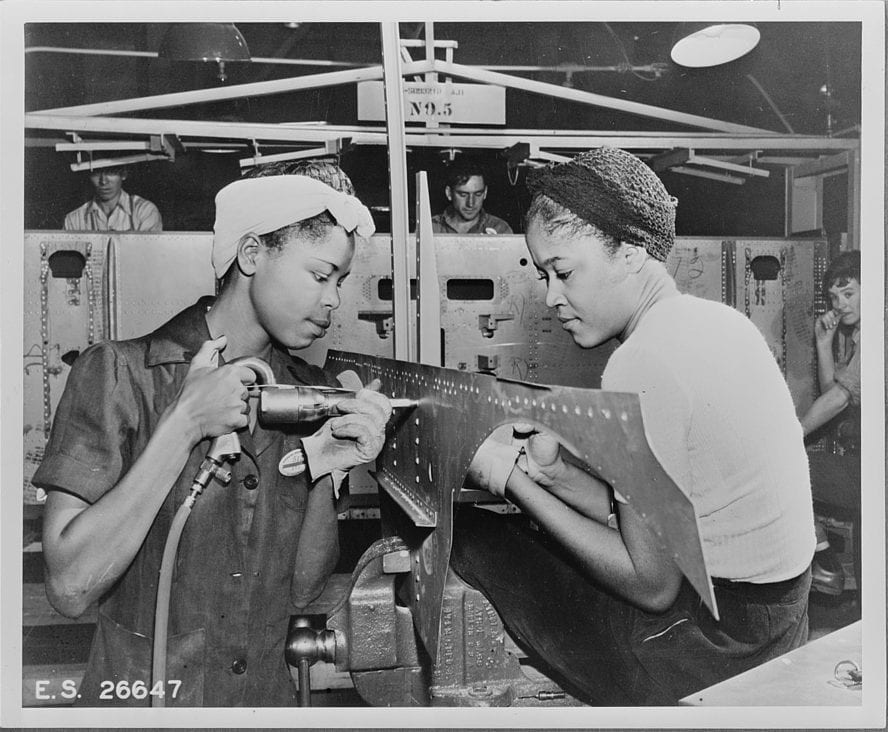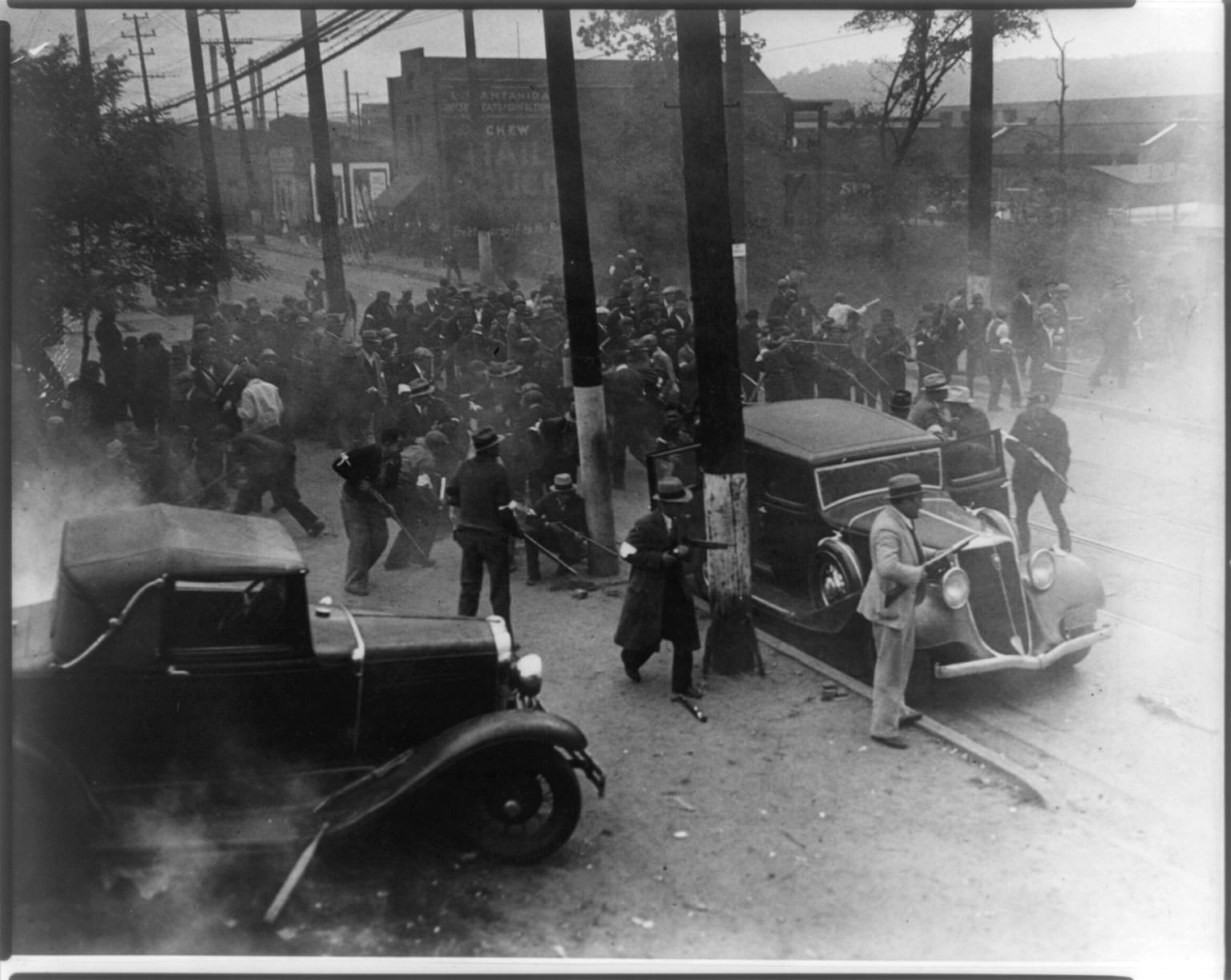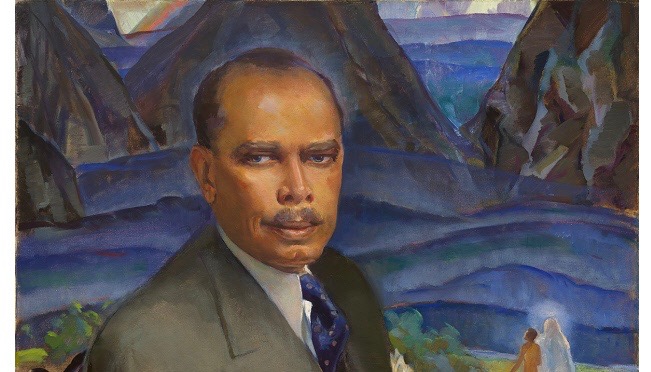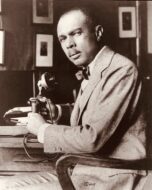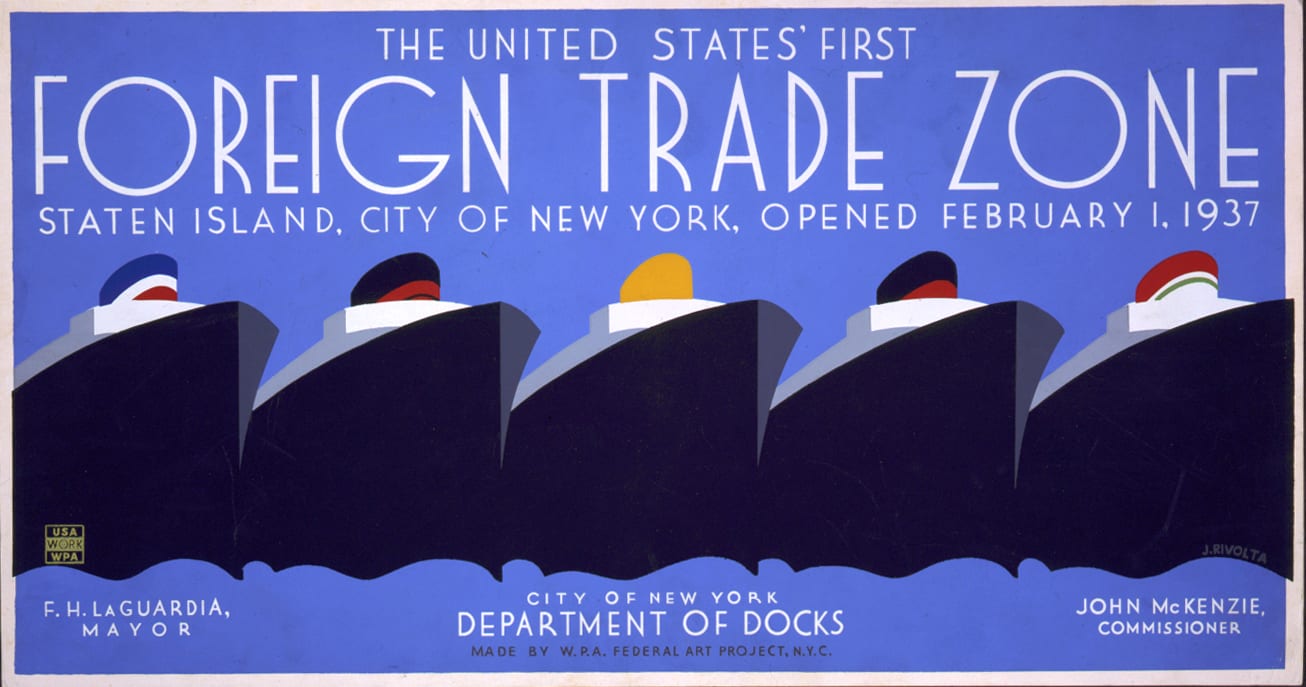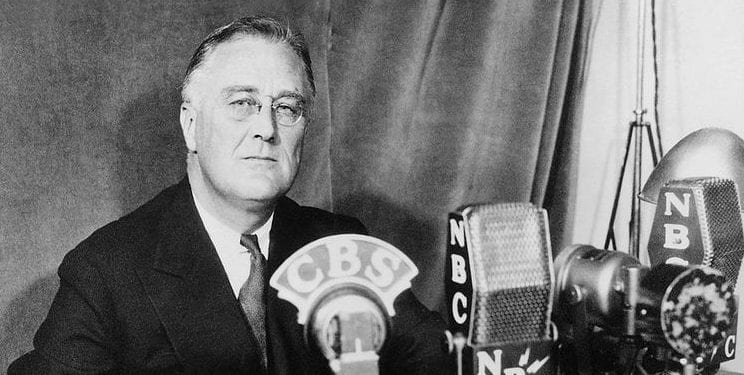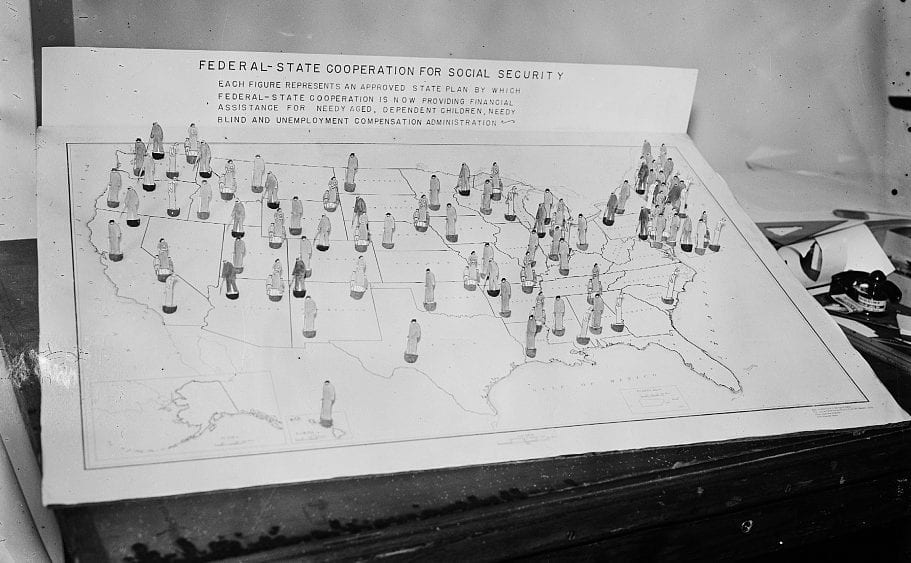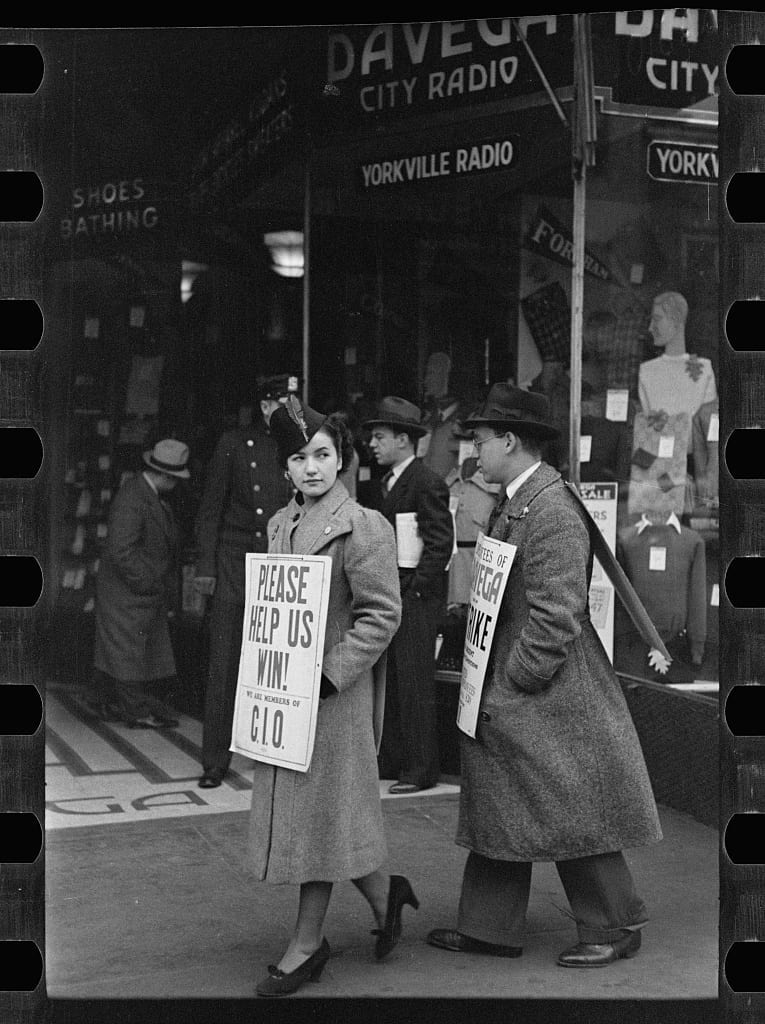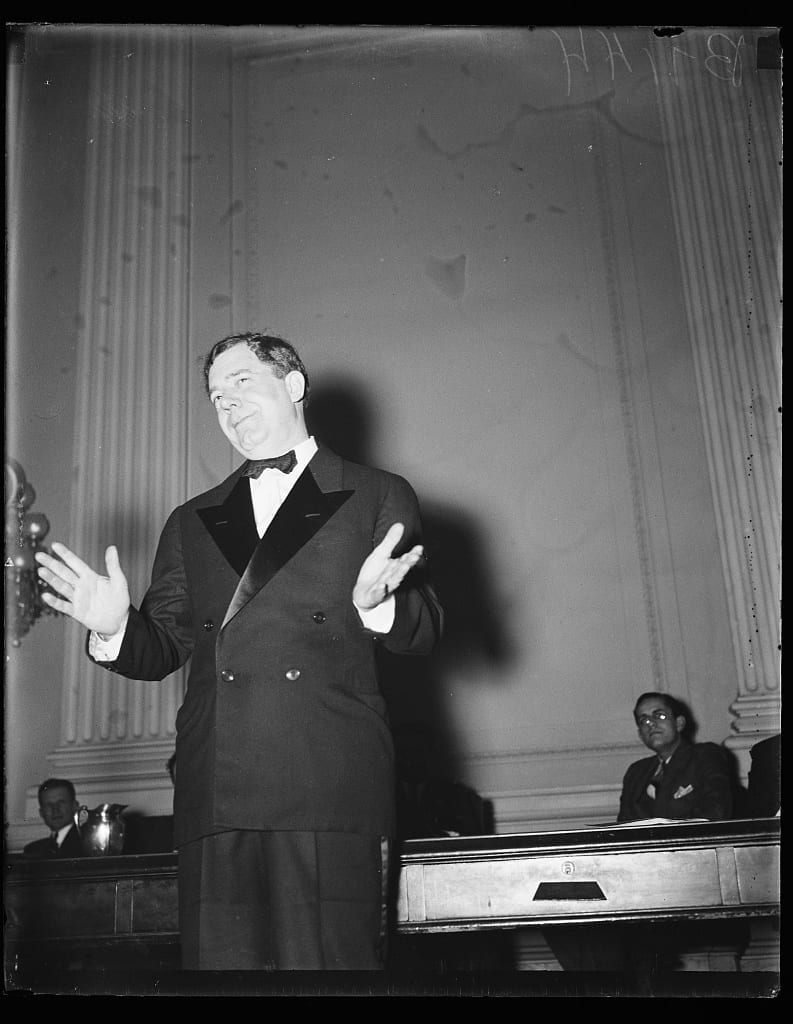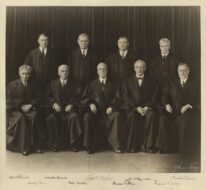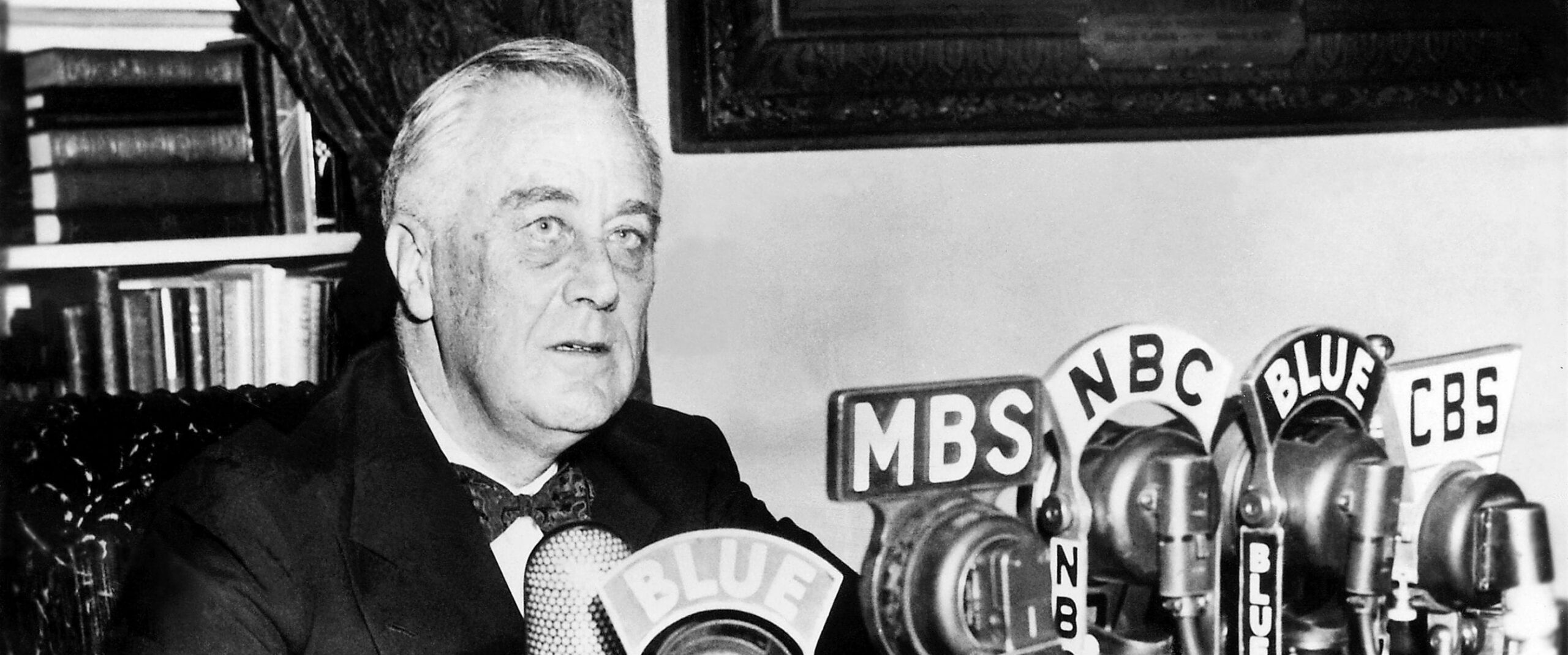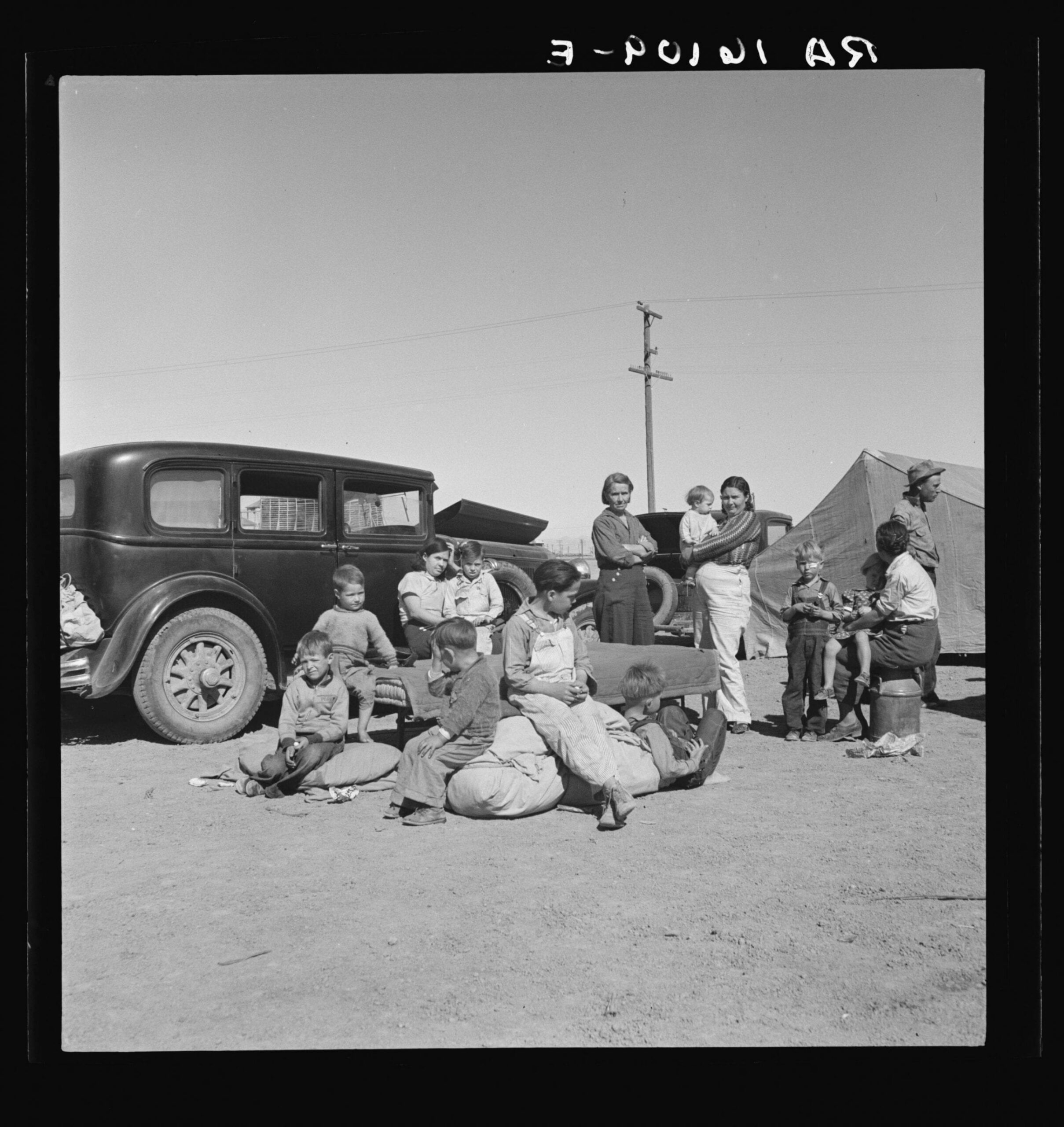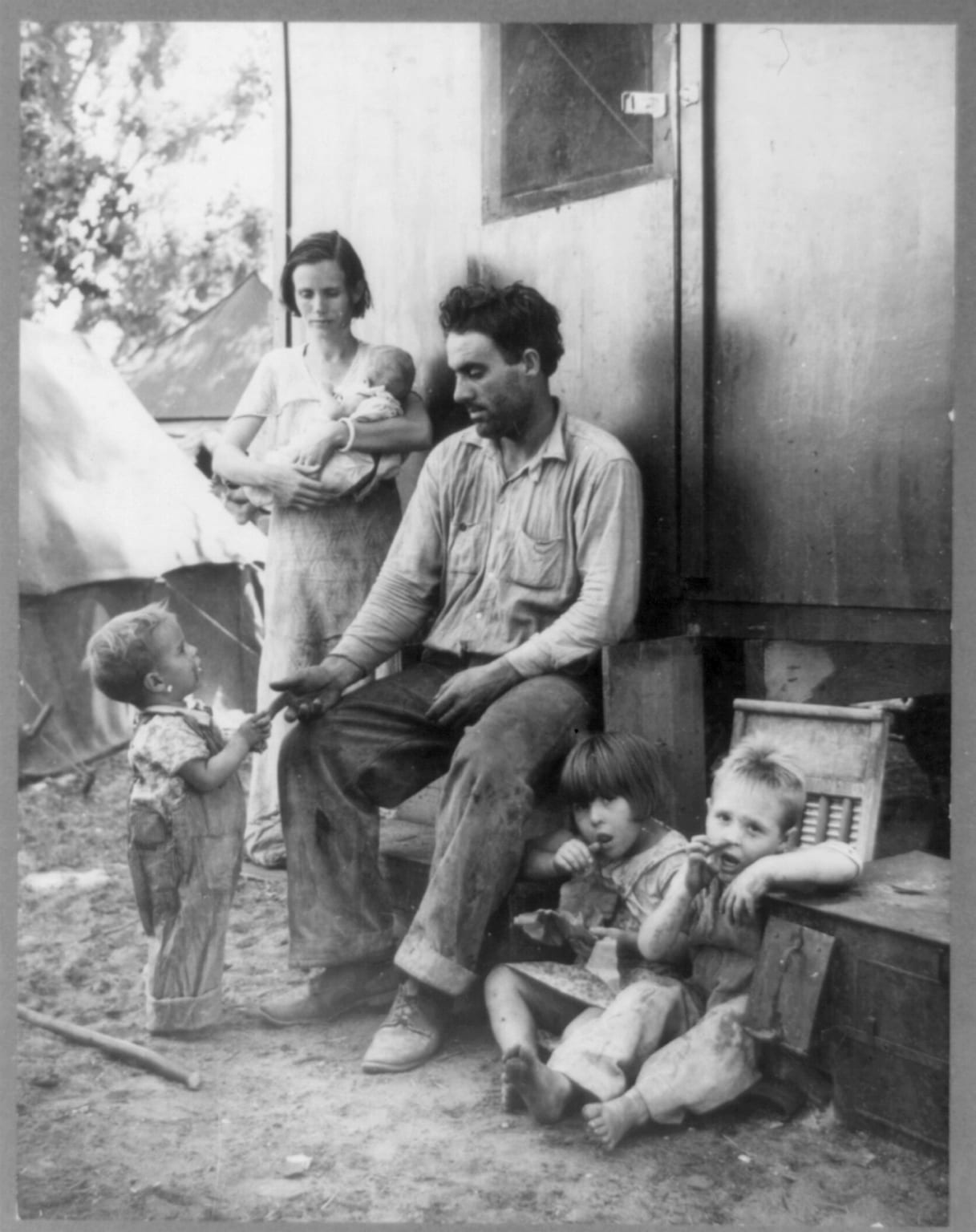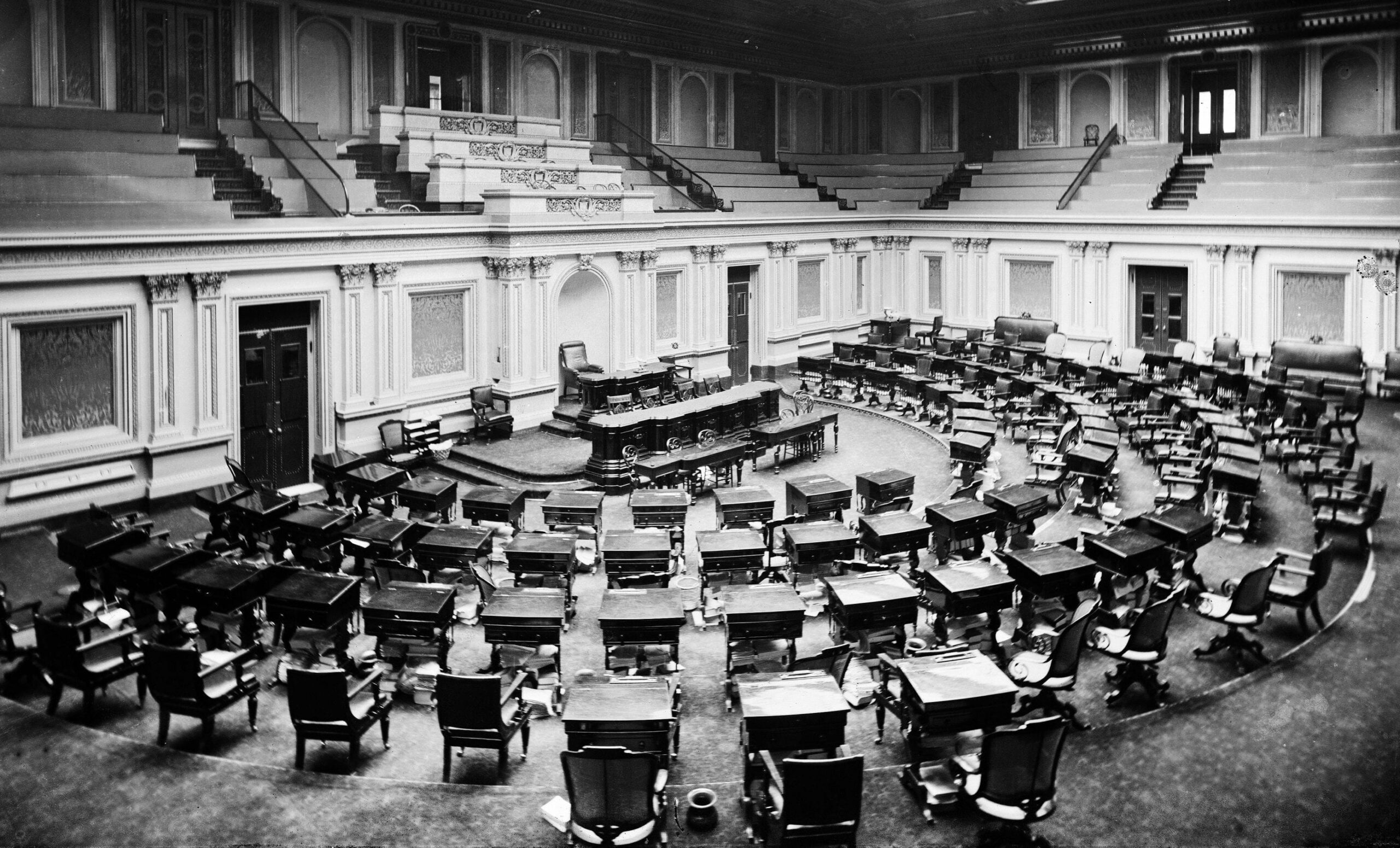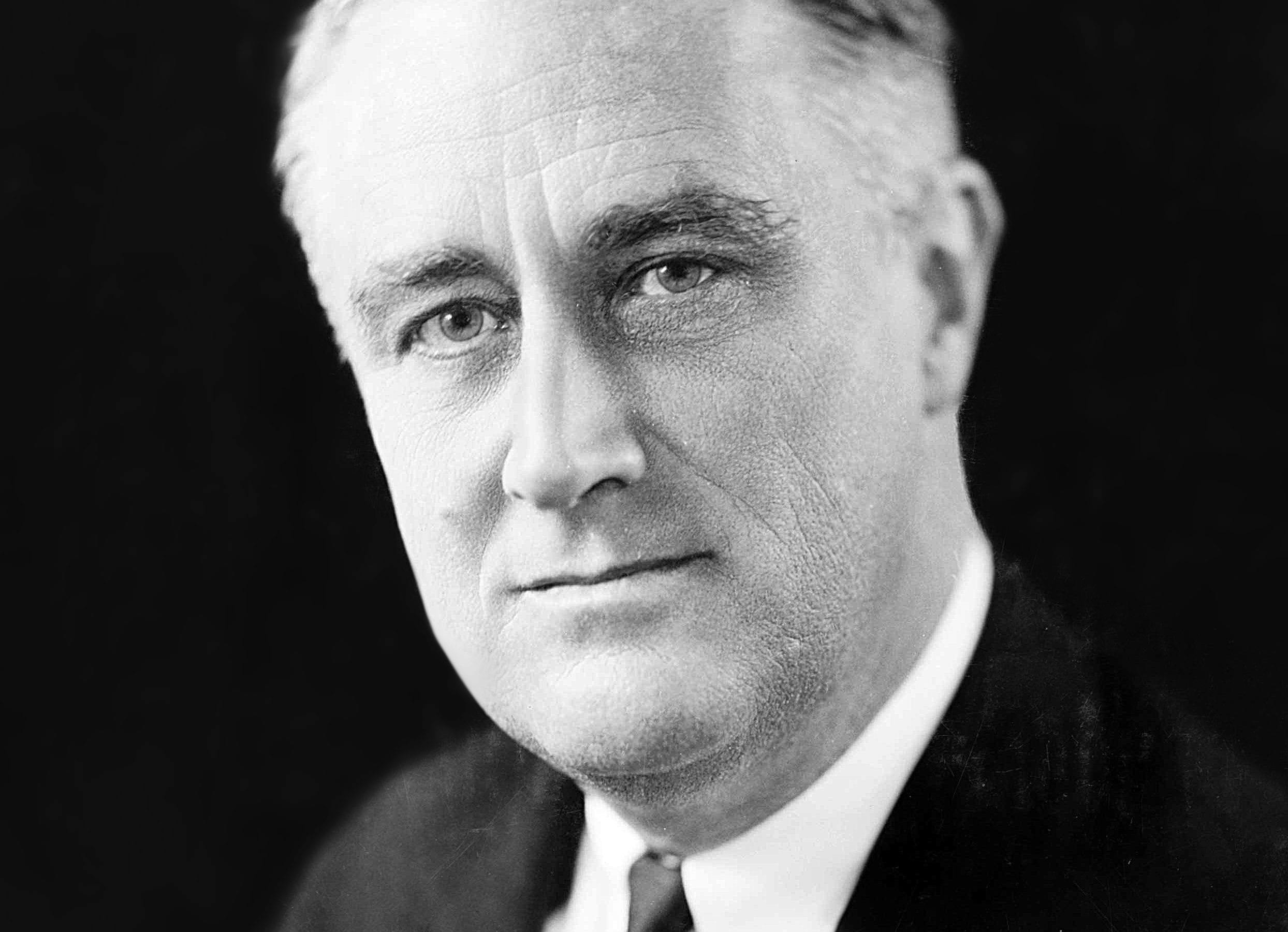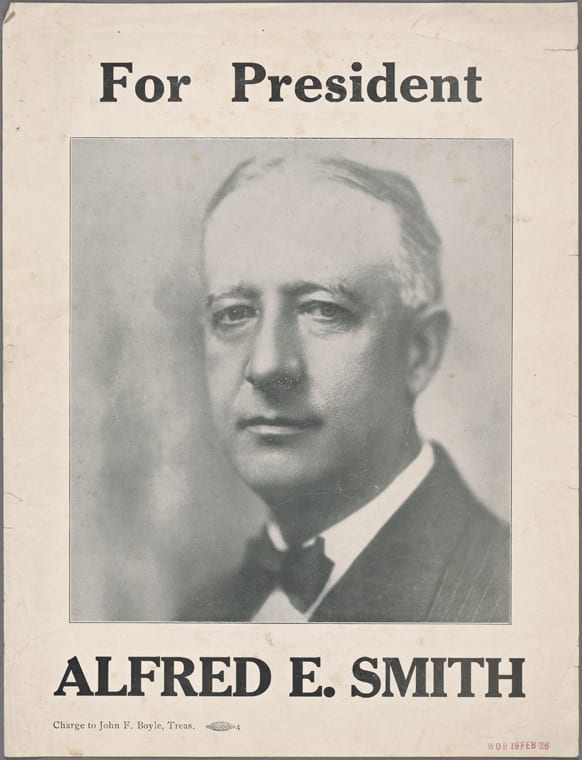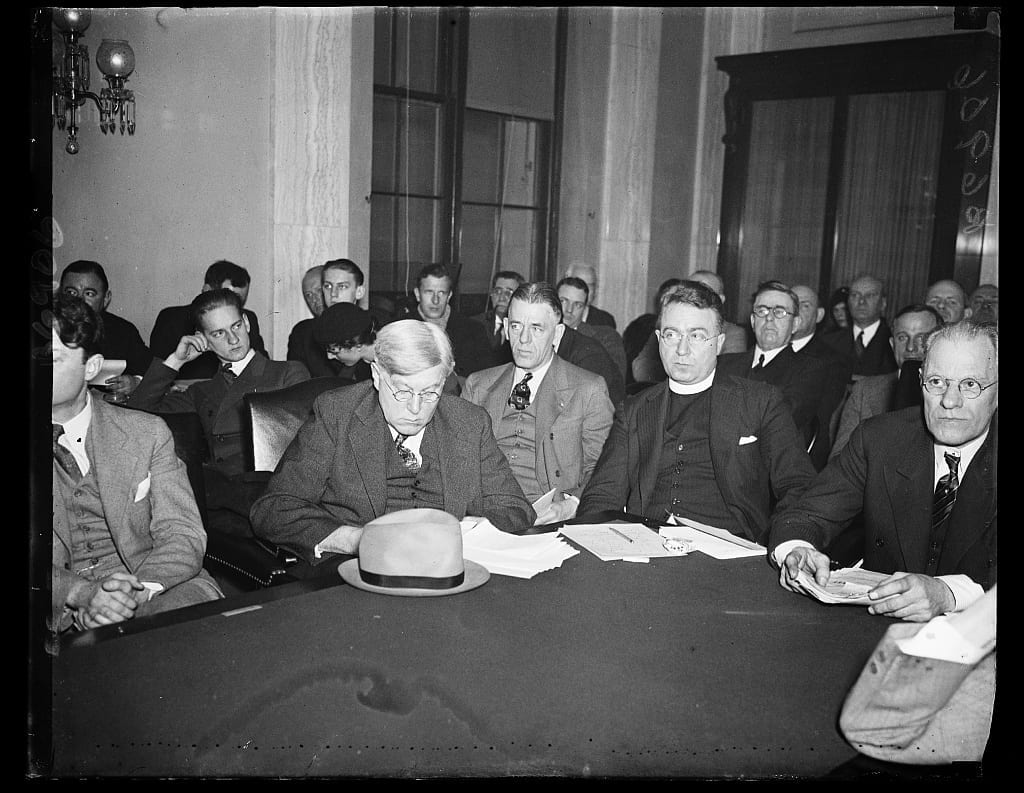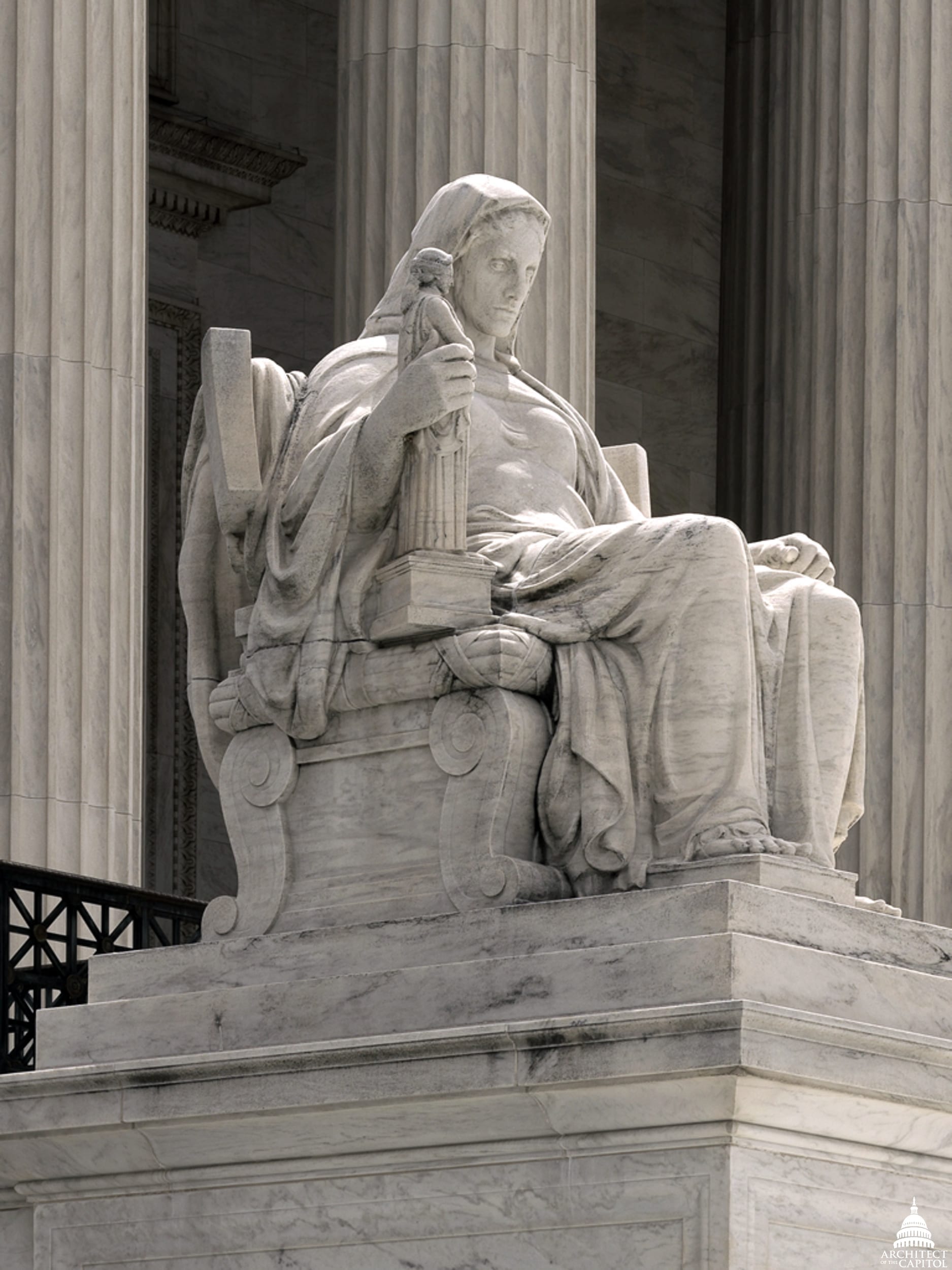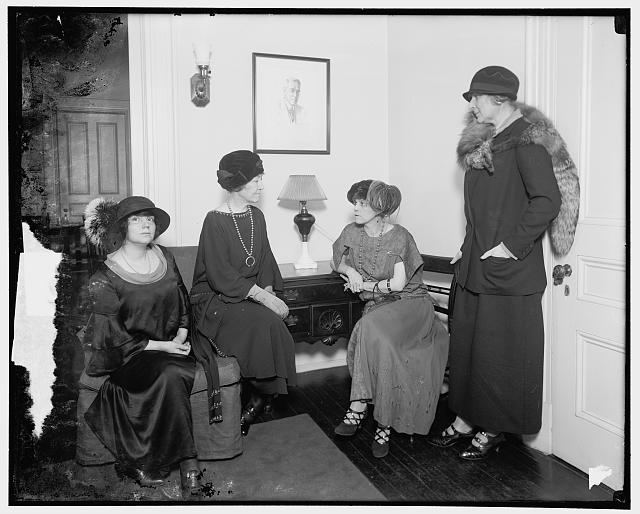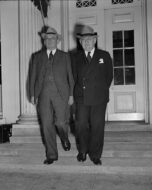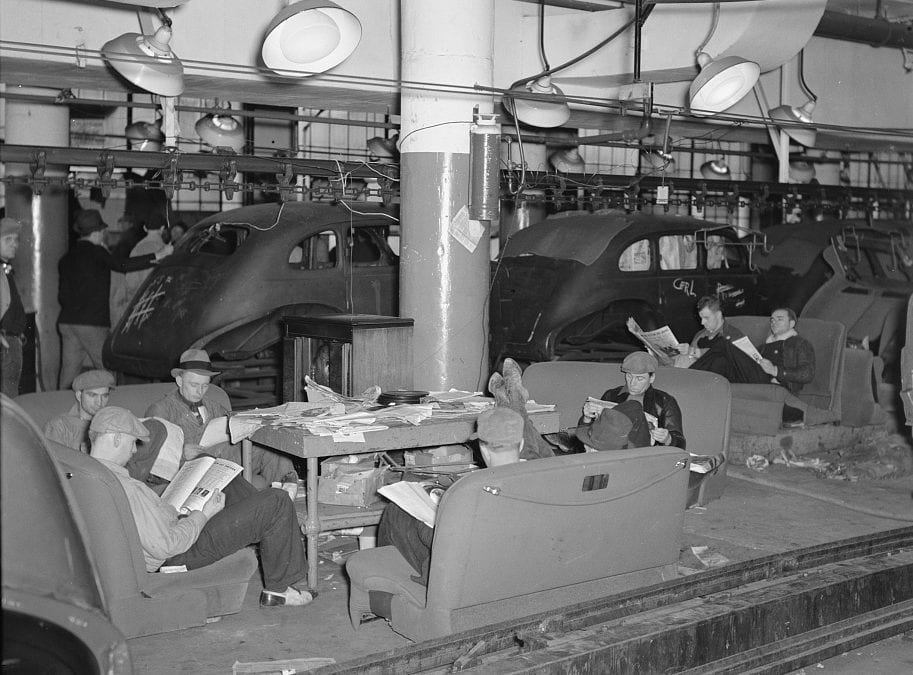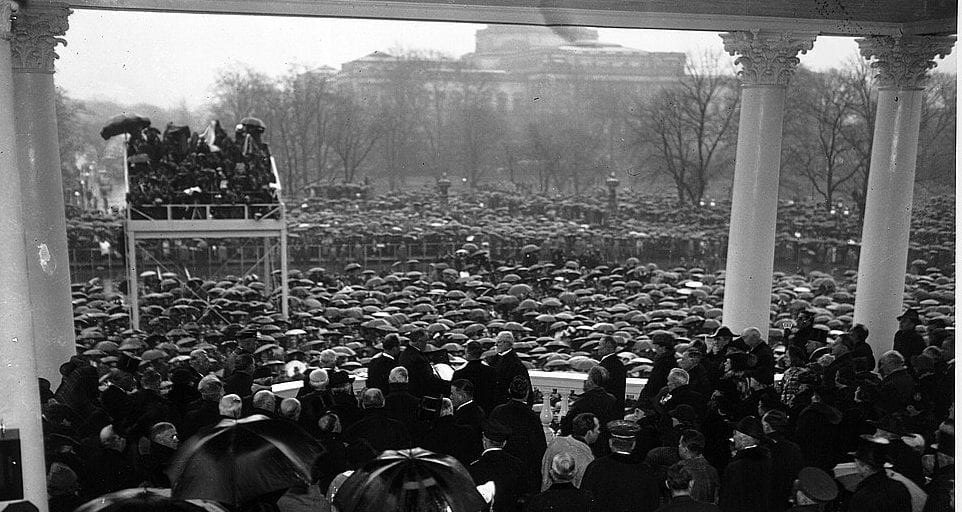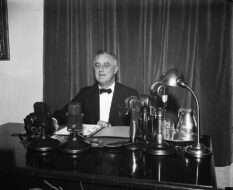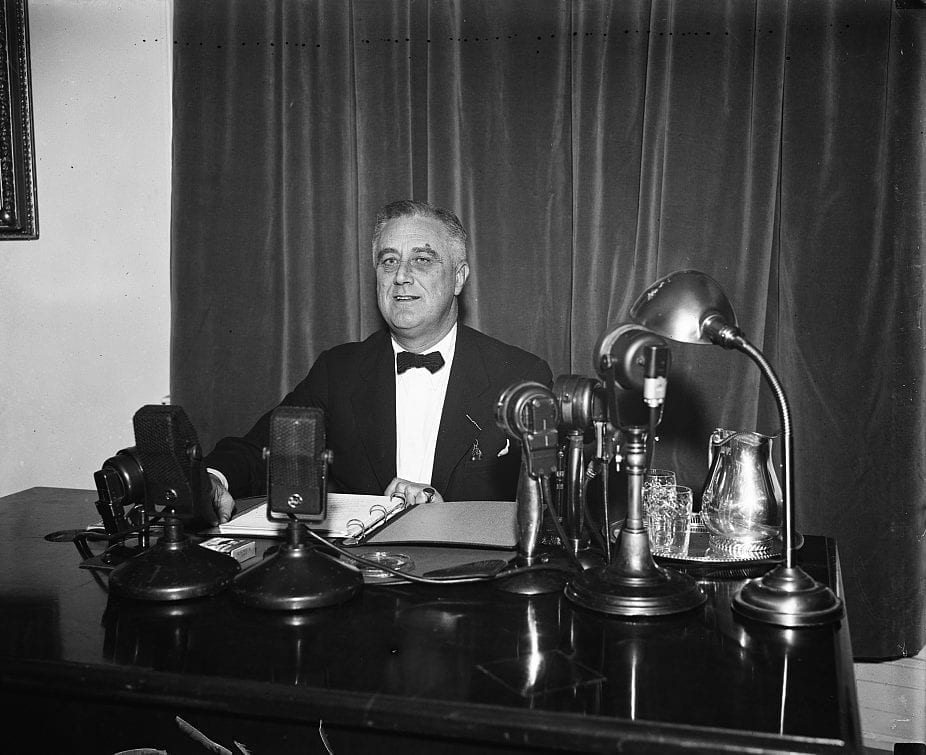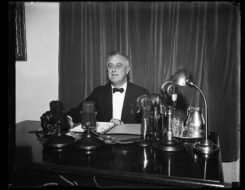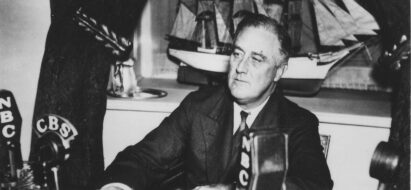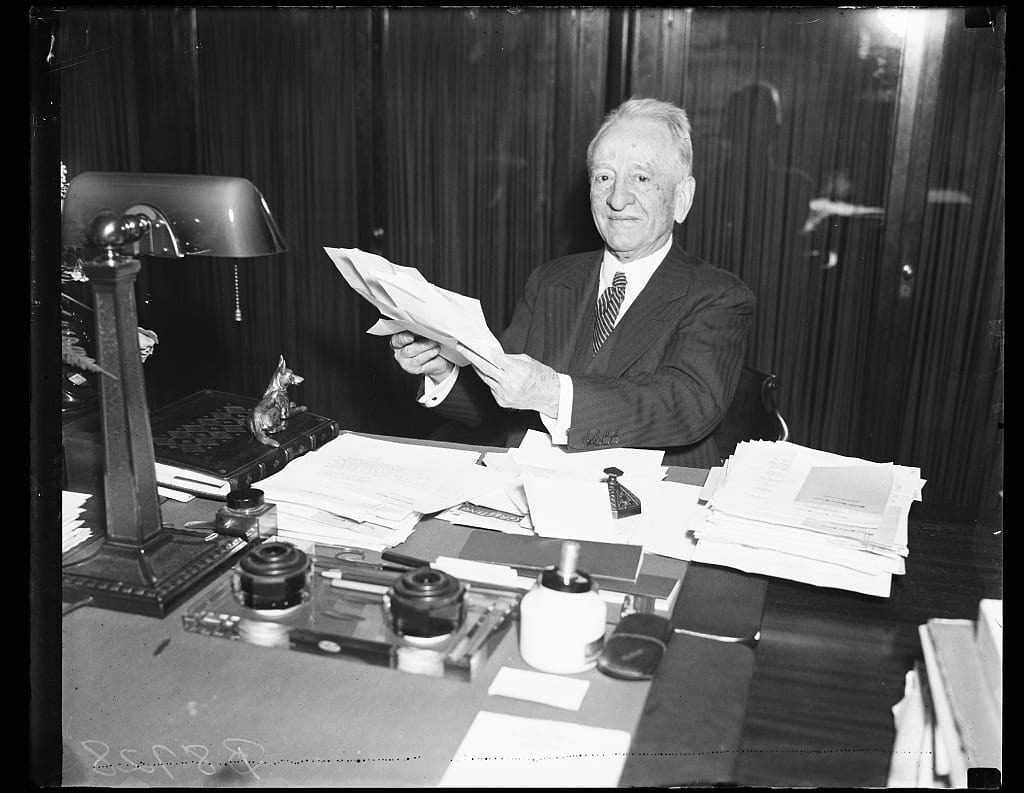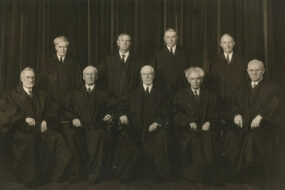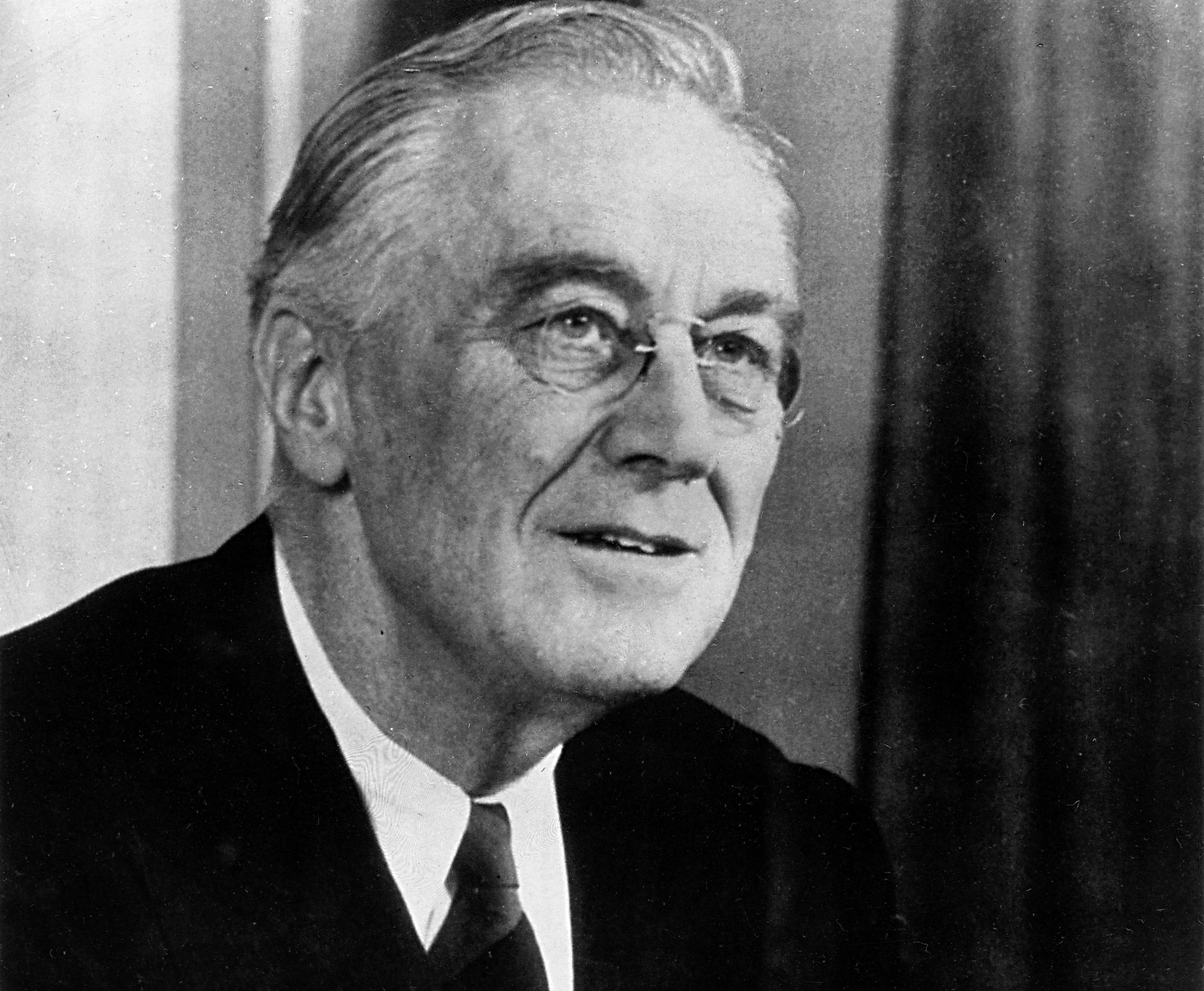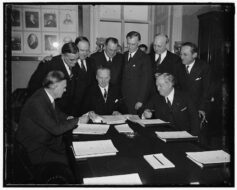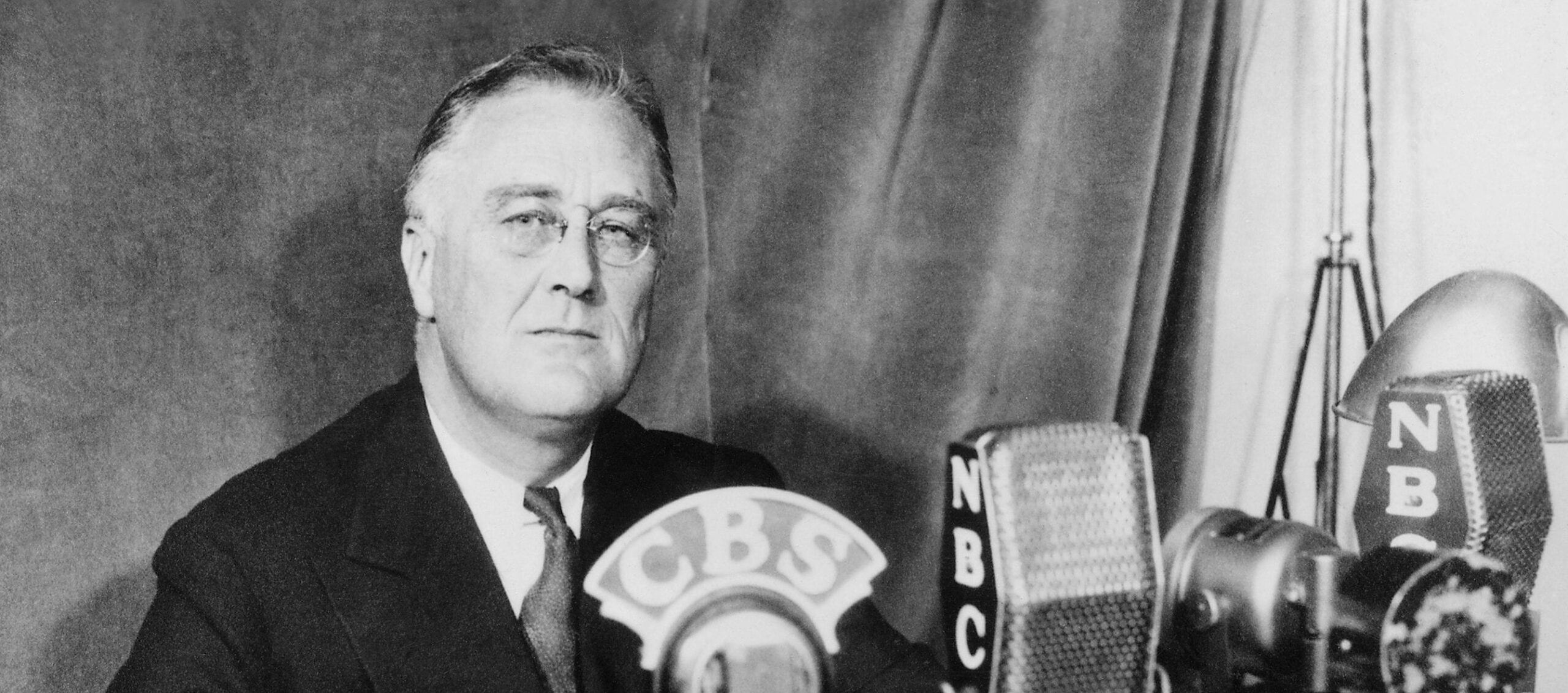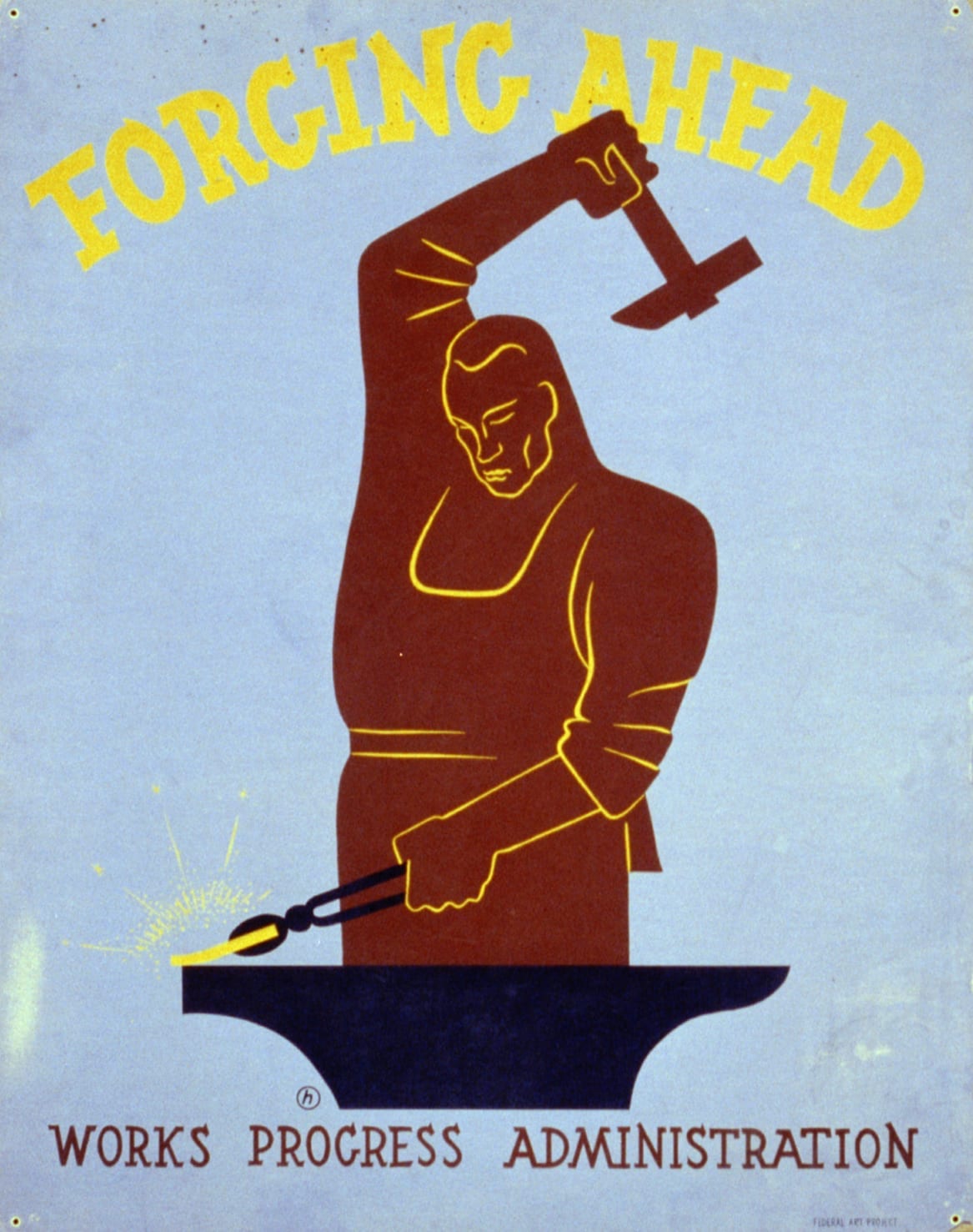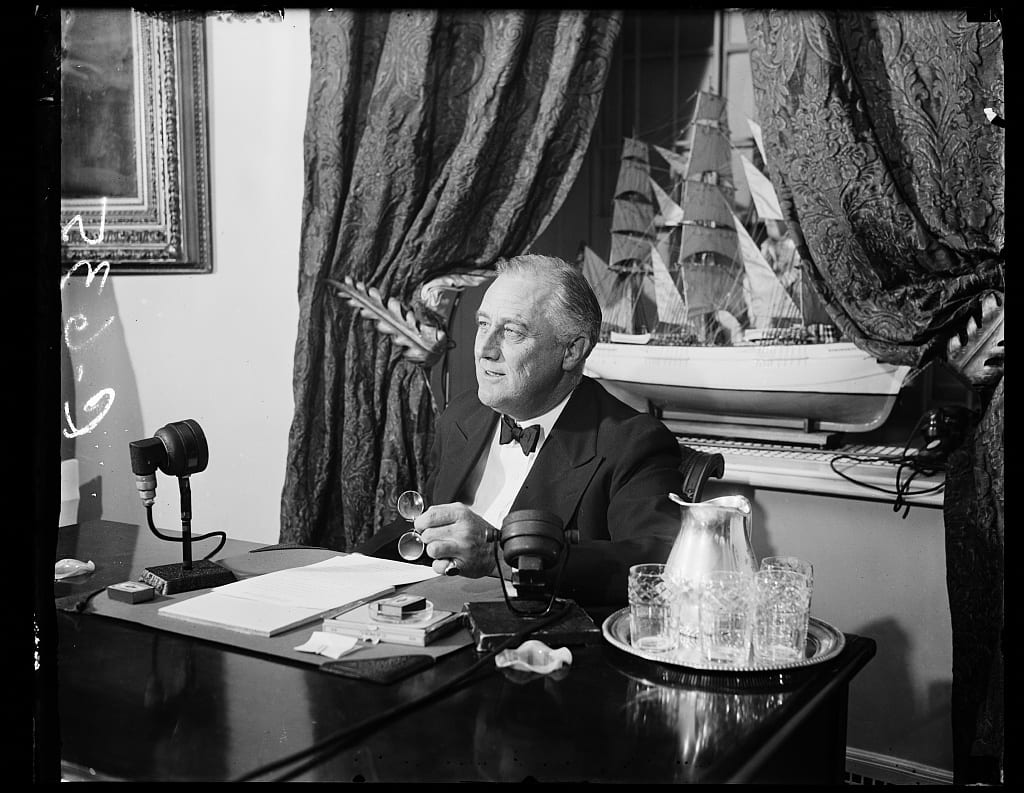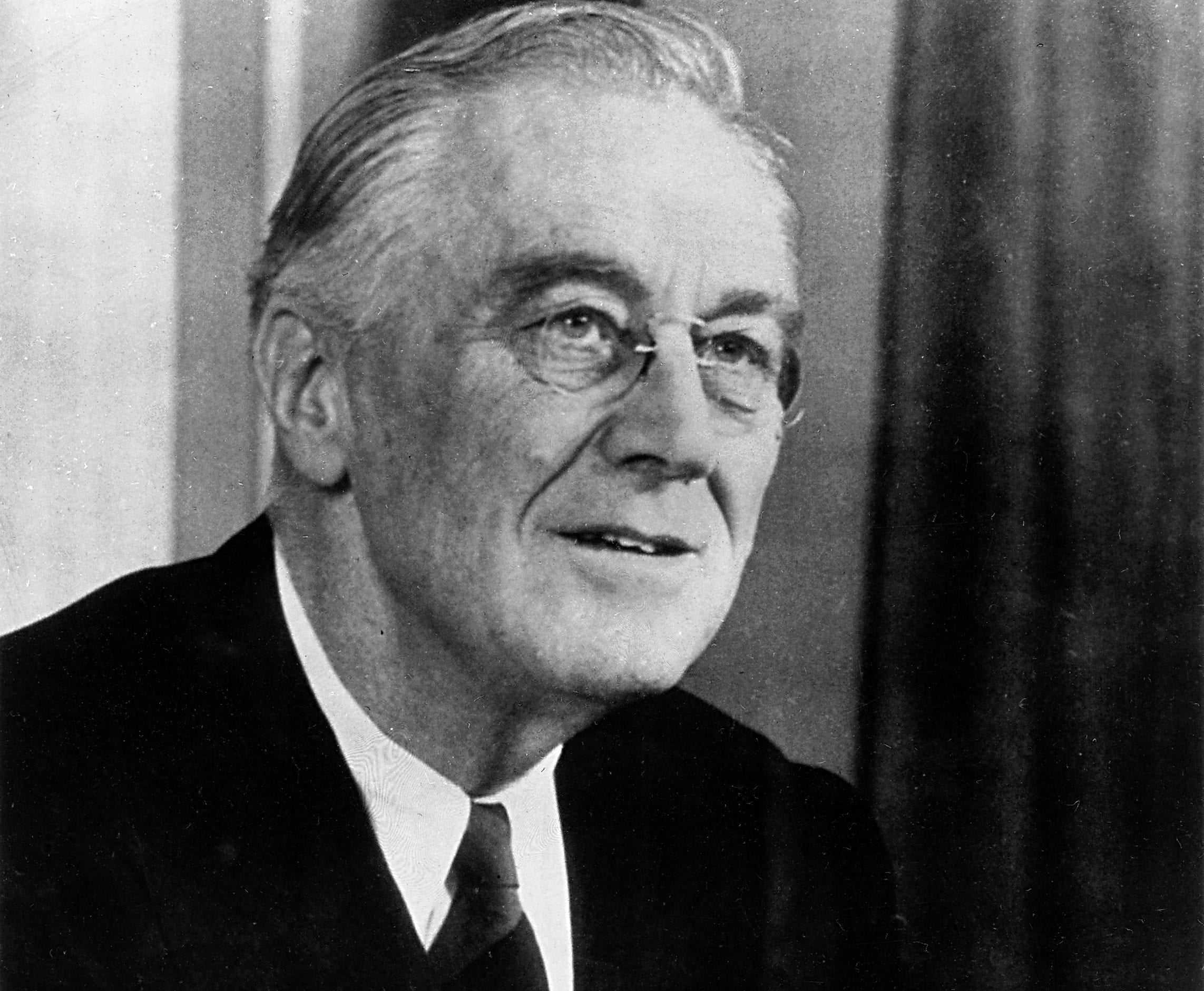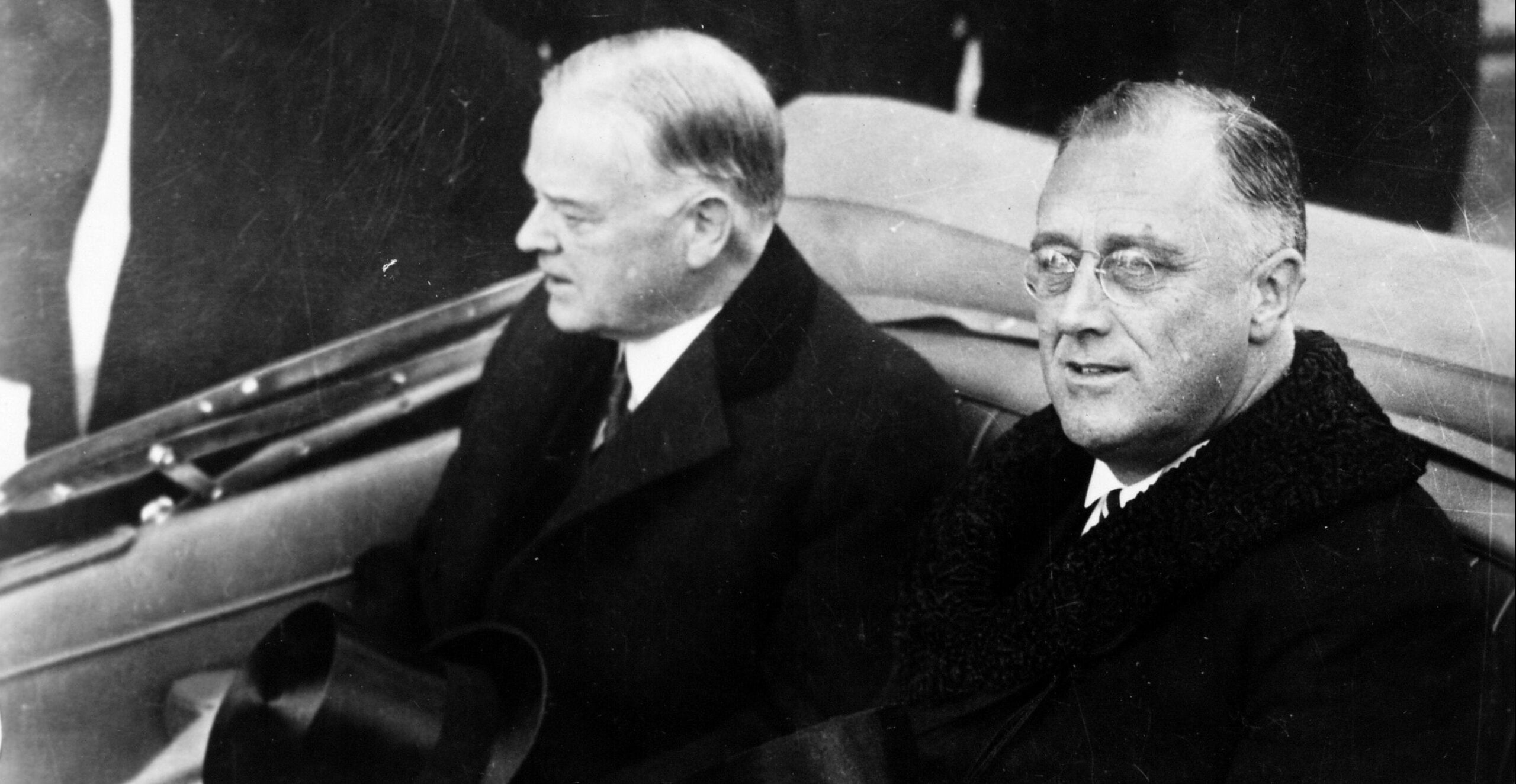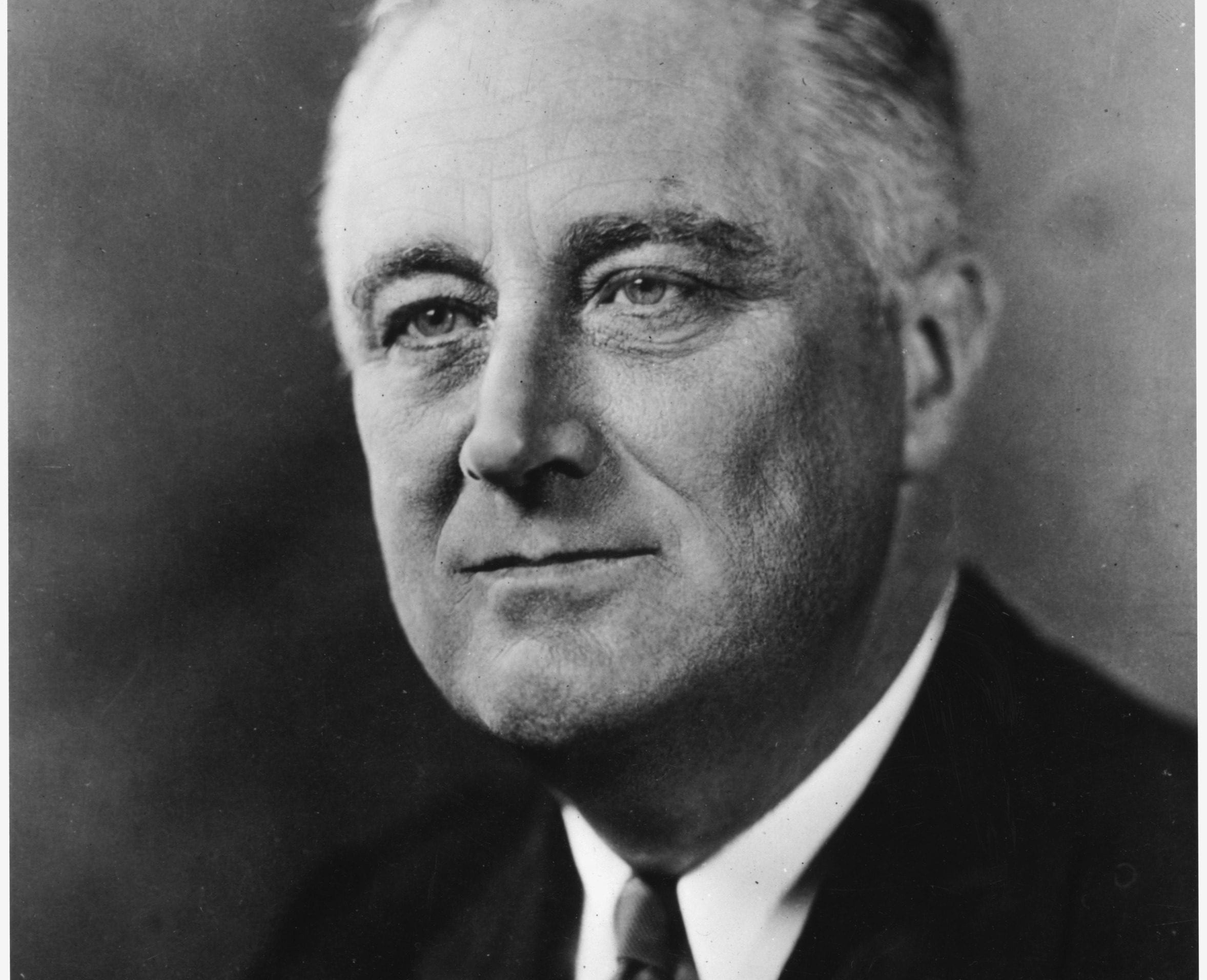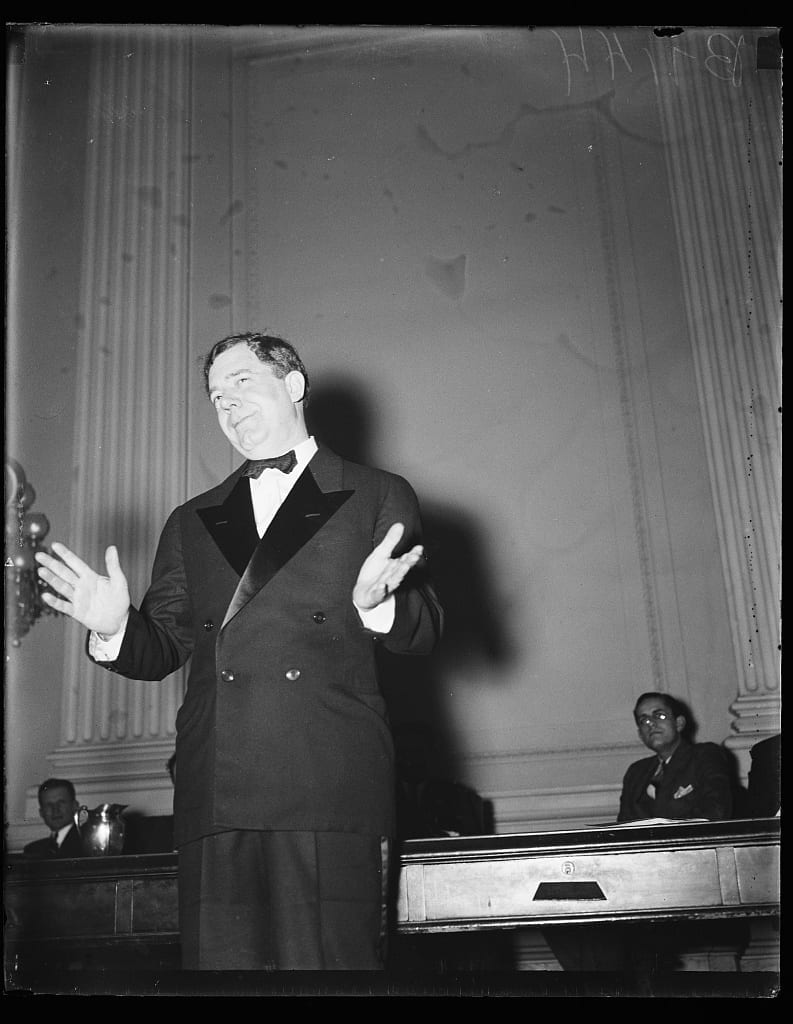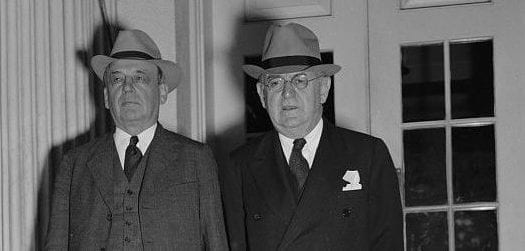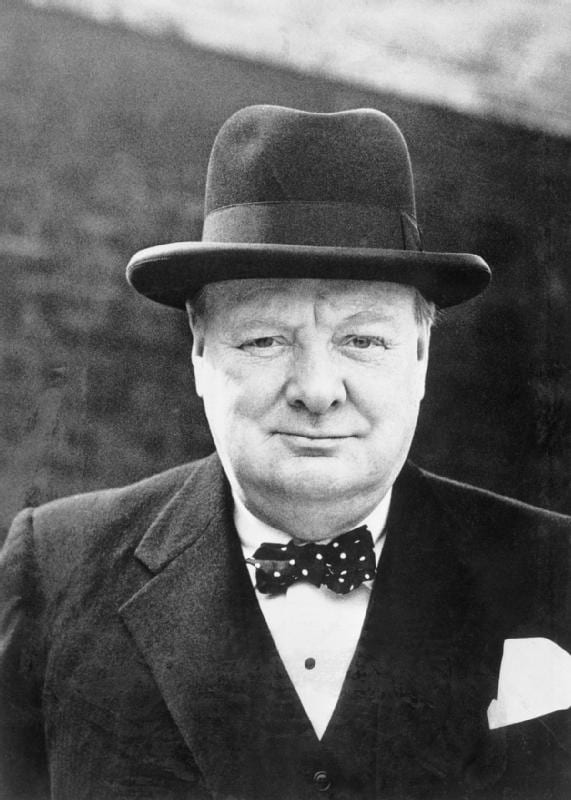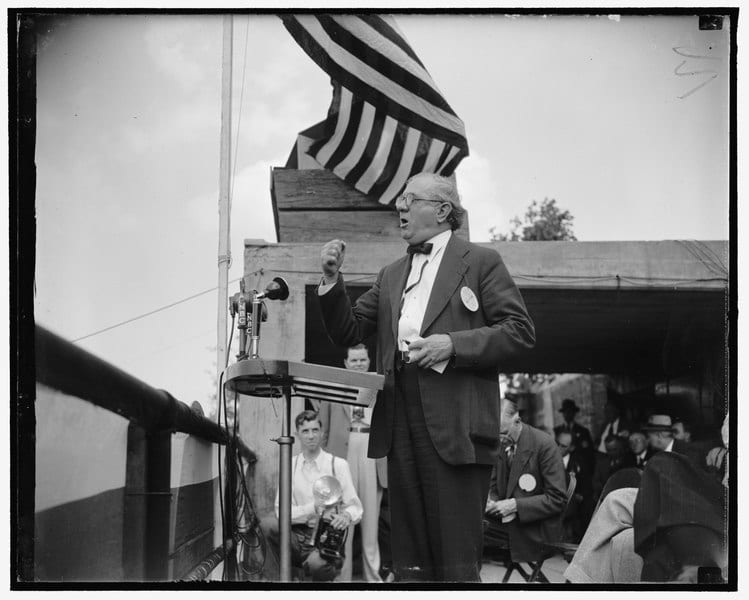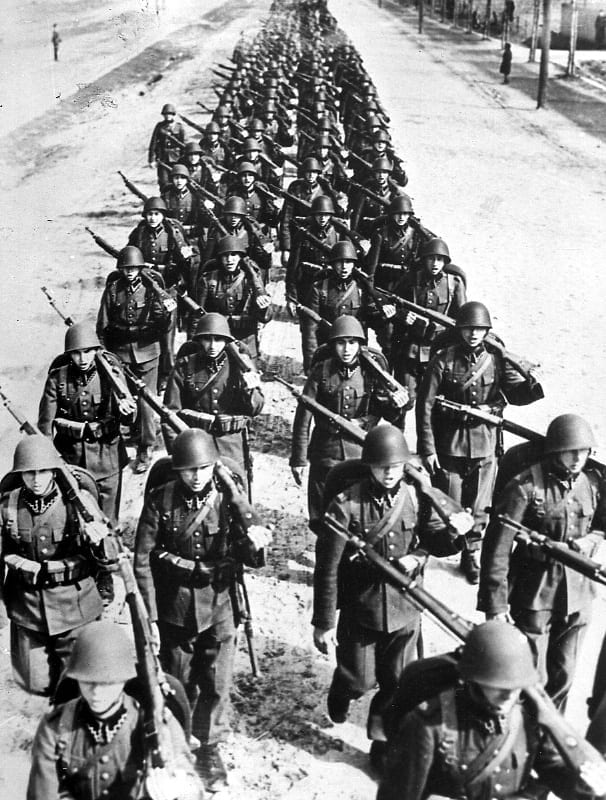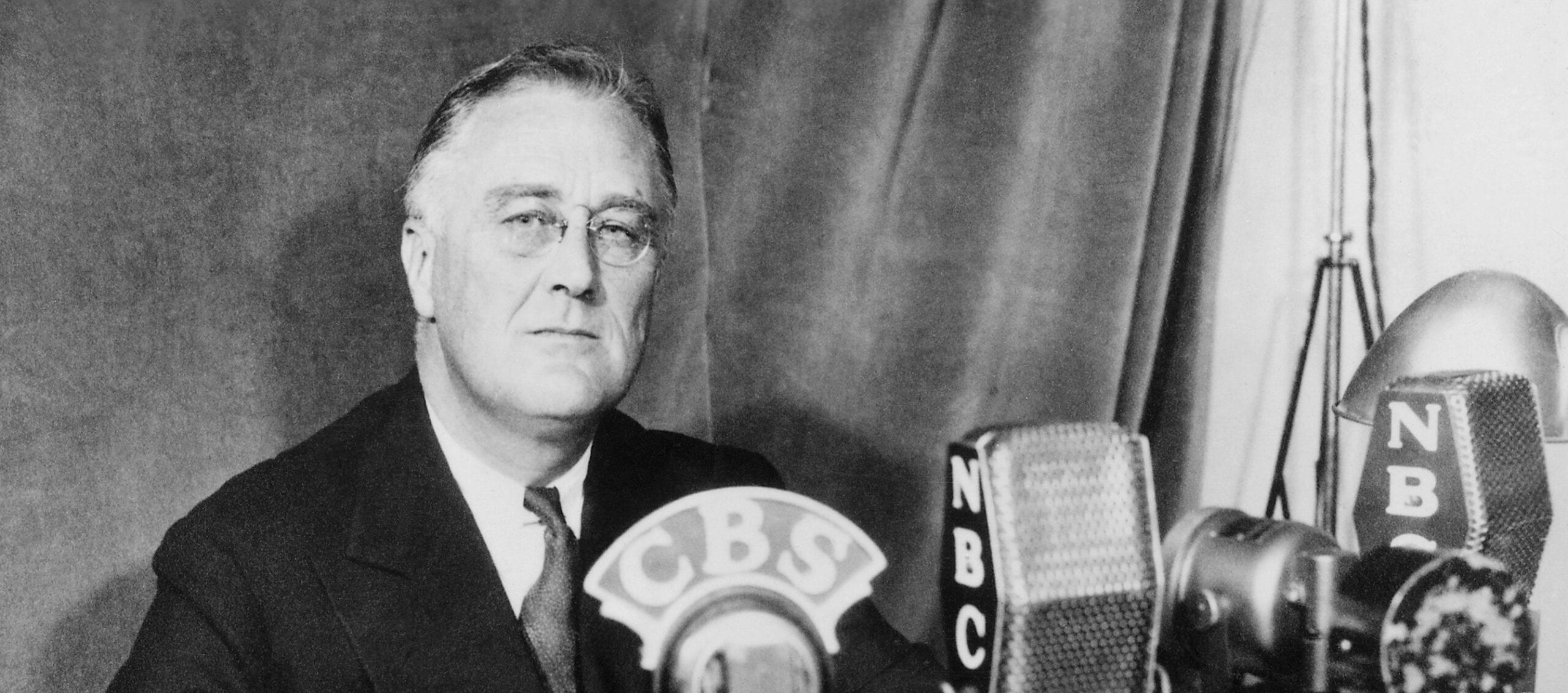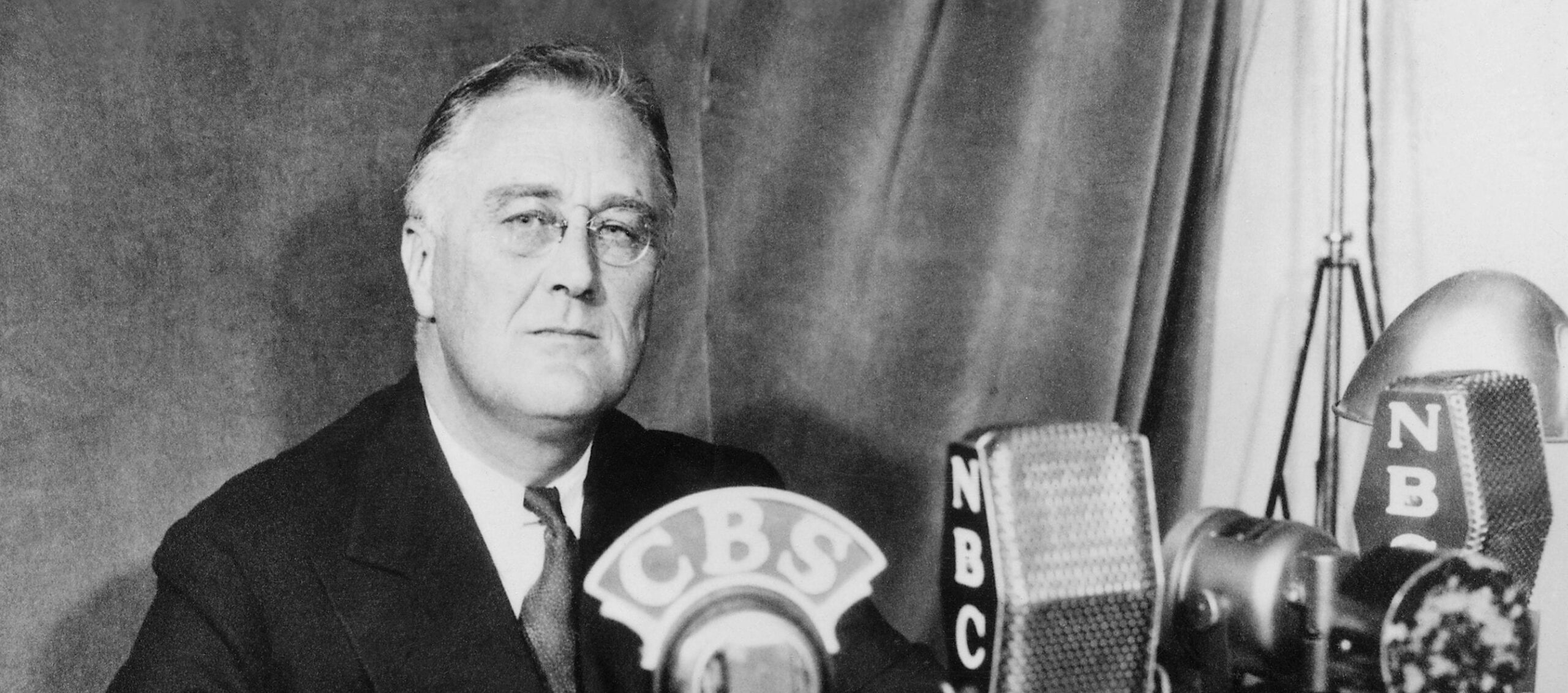
No related resources
Introduction
Herbert Hoover took positive steps to combat the Great Depression, but he made little political headway for himself or his colleagues in the Republican party. He seemed cold and remote and was unwilling to take extraordinary steps to provide direct relief to the American people. This caused Democrats to approach the coming campaign with anticipation and optimism. From the outset, Governor Franklin D. Roosevelt was the front-runner in his personal popularity, but he still had to win the nomination. This is not to say that Roosevelt was the only contender. Al Smith, the 1928 nominee, was in the race, as was John Nance Garner Speaker of the House of Representatives. The first three ballots at the convention produced no winner; two-thirds of the delegates were needed for nomination. Roosevelt then struck a deal with Garner, offering him the vice presidency, and, as a result, the next ballot put Roosevelt over the top. Roosevelt then broke tradition and accepted the nomination in person.
Roosevelt’s party leadership spoke to a more responsible style of parties that would carry out platforms or proposals presented to the people over the course of an election. In the process, Roosevelt wanted to overcome the decentralization and localism of parties, which gave Congress too much control. Instead, he favored executive-oriented parties that would be organized around national purposes. Roosevelt, in short, wanted real differences between the parties rather than the parties resembling two sides of the same coin.
Source: Franklin D. Roosevelt, “Address Accepting the Presidential Nomination at the Democratic National Convention in Chicago,” July 2, 1932. Online by Gerhard Peters and John T. Woolley, The American Presidency Project.
https://www.presidency.ucsb.edu/node/275484
Chairman Walsh, my friends of the Democratic National Convention of 1932:
… I have many things on which I want to make my position clear at the earliest possible moment in this campaign. That admirable document, the platform which you have adopted, is clear. I accept it 100 percent.
And you can accept my pledge that I will leave no doubt or ambiguity on where I stand on any question of moment in this campaign.
As we enter this new battle, let us keep always present with us some of the ideals of the Party: The fact that the Democratic Party by tradition and by the continuing logic of history, past and present, is the bearer of liberalism and of progress and at the same time of safety to our institutions. And if this appeal fails, remember well, my friends, that a resentment against the failure of Republican leadership–and note well that in this campaign I shall not use the word “Republican Party,” but I shall use, day in and day out, the words, “Republican leadership”—the failure of Republican leaders to solve our troubles may degenerate into unreasoning radicalism.
The great social phenomenon of this depression, unlike others before it, is that it has produced but a few of the disorderly manifestations that too often attend upon such times.
Wild radicalism has made few converts, and the greatest tribute that I can pay to my countrymen is that in these days of crushing want there persists an orderly and hopeful spirit on the part of the millions of our people who have suffered so much. To fail to offer them a new chance is not only to betray their hopes but to misunderstand their patience.
To meet by reaction that danger of radicalism is to invite disaster. Reaction is no barrier to the radical. It is a challenge, a provocation. The way to meet that danger is to offer a workable program of reconstruction, and the party to offer it is the party with clean hands.
This, and this only, is a proper protection against blind reaction on the one hand and an improvised, hit-or-miss, irresponsible opportunism on the other.
There are two ways of viewing the Government’s duty in matters affecting economic and social life. The first sees to it that a favored few are helped and hopes that some of their prosperity will leak through, sift through, to labor, to the farmer, to the small business man. That theory belongs to the party of Toryism, and I had hoped that most of the Tories left this country in 1776
But it is not and never will be the theory of the Democratic Party. This is no time for fear, for reaction or for timidity. Here and now I invite those nominal Republicans who find that their conscience cannot be squared with the groping and the failure of their party leaders to join hands with us; here and now, in equal measure, I warn those nominal Democrats who squint at the future with their faces turned toward the past, and who feel no responsibility to the demands of the new time, that they are out of step with their Party.
Yes, the people of this country want a genuine choice this year, not a choice between two names for the same reactionary doctrine. Ours must be a party of liberal thought, of planned action, of enlightened international outlook, and of the greatest good to the greatest number of our citizens.
Now it is inevitable–and the choice is that of the times—it is inevitable that the main issue of this campaign should revolve about the clear fact of our economic condition, a depression so deep that it is without precedent in modern history. It will not do merely to state, as do Republican leaders to explain their broken promises of continued inaction, that the depression is worldwide. That was not their explanation of the apparent prosperity of 1928. The people will not forget the claim made by them then that prosperity was only a domestic product manufactured by a Republican President and a Republican Congress. If they claim paternity for the one they cannot deny paternity for the other.
. . . Then came the crash. You know the story. Surpluses invested in unnecessary plants became idle. Men lost their jobs; purchasing power dried up; banks became frightened and started calling loans. Those who had money were afraid to part with it. Credit contracted. Industry stopped. Commerce declined, and unemployment mounted.
And there we are today.
Translate that into human terms. See how the events of the past three years have come home to specific groups of people: first, the group dependent on industry; second, the group dependent on agriculture; third, and made up in large part of members of the first two groups, the people who are called “small investors and depositors.” In fact, the strongest possible tie between the first two groups, agriculture and industry, is the fact that the savings and to a degree the security of both are tied together in that third group–the credit structure of the Nation.
… Statesmanship and vision, my friends, require relief to all at the same time.
… Two years ago the platform on which I ran for Governor the second time contained substantially the same provision. The overwhelming sentiment of the people of my State, as shown by the vote of that year, extends, I know, to the people of many of the other States. I say to you now that from this date on the 18th Amendment is doomed. When that happens, we as Democrats must and will, rightly and morally, enable the States to protect themselves against the importation of intoxicating liquor where such importation may violate their State laws. We must rightly and morally prevent the return of the saloon.
To go back to this dry subject of finance, because it all ties in together–the 18th Amendment has something to do with finance, too—in a comprehensive planning for the reconstruction of the great credit groups, including Government credit, I list an important place for that prize statement of principle in the platform here adopted calling for the letting in of the light of day on issues of securities, foreign and domestic, which are offered for sale to the investing public.
My friends, you and I as common-sense citizens know that it would help to protect the savings of the country from the dishonesty of crooks and from the lack of honor of some men in high financial places. Publicity is the enemy of crookedness.
… In so doing, employment can be given to a million men. That is the kind of public work that is self-sustaining, and therefore capable of being financed by the issuance of bonds which are made secure by the fact that the growth of tremendous crops will provide adequate security for the investment.
Yes, I have a very definite program for providing employment by that means. I have done it, and I am doing it today in the State of New York. I know that the Democratic Party can do it successfully in the Nation. That will put men to work, and that is an example of the action that we are going to have.
… Such a plan as that, my friends, does not cost the Government any money, nor does it keep the Government in business or in speculation.
As to the actual wording of a bill, I believe that the Democratic Party stands ready to be guided by whatever the responsible farm groups themselves agree on. That is a principle that is sound; and again I ask for action.
… That is why we are going to make the voters understand this year that this Nation is not merely a Nation of independence, but it is, if we are to survive, bound to be a Nation of interdependence—town and city, and North and South, East and West. That is our goal, and that goal will be understood by the people of this country no matter where they live.
… Go into the home of the business man. He knows what the tariff has done for him. Go into the home of the factory worker. He knows why goods do not move. Go into the home of the farmer. He knows how the tariff has helped to ruin him.
At last our eyes are open. At last the American people are ready to acknowledge that Republican leadership was wrong and that the Democracy is right.
My program, of which I can only touch on these points, is based upon this simple moral principle: the welfare and the soundness of a Nation depend first upon what the great mass of the people wish and need; and second, whether or not they are getting it.
What do the people of America want more than anything else? To my mind, they want two things: work, with all the moral and spiritual values that go with it; and with work, a reasonable measure of security—security for themselves and for their wives and children. Work and security—these are more than words. They are more than facts. They are the spiritual values, the true goal toward which our efforts of reconstruction should lead. These are the values that this program is intended to gain; these are the values we have failed to achieve by the leadership we now have.
Our Republican leaders tell us economic laws—sacred, inviolable, unchangeable—cause panics which no one could prevent. But while they prate of economic laws, men and women are starving. We must lay hold of the fact that economic laws are not made by nature. They are made by human beings.
Yes, when—not if—when we get the chance, the Federal Government will assume bold leadership in distress relief. For years Washington has alternated between putting its head in the sand and saying there is no large number of destitute people in our midst who need food and clothing, and then saying the States should take care of them, if there are. Instead of planning two and a half years ago to do what they are now trying to do, they kept putting it off from day to day, week to week, and month to month, until the conscience of America demanded action.
I say that while primary responsibility for relief rests with localities now, as ever, yet the Federal Government has always had and still has a continuing responsibility for the broader public welfare. It will soon fulfill that responsibility.
… One word more: Out of every crisis, every tribulation, every disaster, mankind rises with some share of greater knowledge, of higher decency, of purer purpose. Today we shall have come through a period of loose thinking, descending morals, an era of selfishness, among individual men and women and among Nations. Blame not Governments alone for this. Blame ourselves in equal share. Let us be frank in acknowledgment of the truth that many amongst us have made obeisance to Mammon, that the profits of speculation, the easy road without toil, have lured us from the old barricades. To return to higher standards we must abandon the false prophets and seek new leaders of our own choosing.
Never before in modern history have the essential differences between the two major American parties stood out in such striking contrast as they do today. Republican leaders not only have failed in material things, they have failed in national vision, because in disaster they have held out no hope, they have pointed out no path for the people below to climb back to places of security and of safety in our American life.
Throughout the Nation, men and women, forgotten in the political philosophy of the Government of the last years look to us here for guidance and for more equitable opportunity to share in the distribution of national wealth.
On the farms, in the large metropolitan areas, in the smaller cities and in the villages, millions of our citizens cherish the hope that their old standards of living and of thought have not gone forever. Those millions cannot and shall not hope in vain.
I pledge you, I pledge myself, to a new deal for the American people. Let us all here assembled constitute ourselves prophets of a new order of competence and of courage. This is more than a political campaign; it is a call to arms. Give me your help, not to win votes alone, but to win in this crusade to restore America to its own people.

Conversation-based seminars for collegial PD, one-day and multi-day seminars, graduate credit seminars (MA degree), online and in-person.

